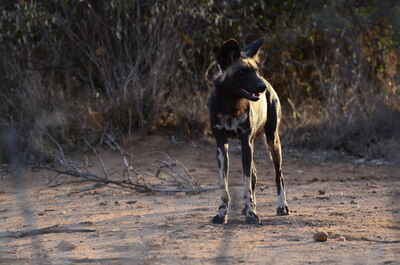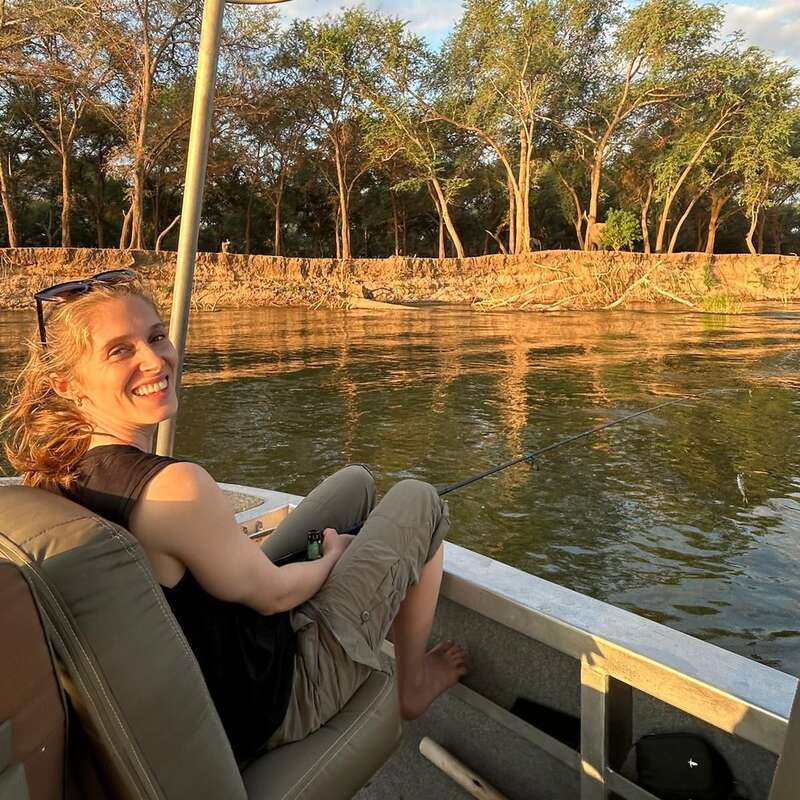About Laikipia Wilderness
Built and owned by a highly experienced Zimbabwean safari couple, Laikipia Wilderness has been a big hit with visitors.
Steve Carey and his wife came to Kenya from Zimbabwe in the early 2000s to manage Sosian Lodge.
Steve went on to build his own safari camp – Laikipia Wilderness – on the neighbouring ranch, offering authentic, traditionally-run safaris.
Laikipia Wilderness has a very strong focus on enjoying the wildlife and participating in adventure activities in this rewarding and beautiful part of Kenya.
Wild dog packs and black leopards are the outstanding draws in recent years, and photographers visit from all over the world to capture images of them.
Our view
Knowing the highly experienced Zimbabwean owner of this camp already, we guessed it would be a great experience, and we were right. Our last stay confirmed its appeal as coming down very much to the camp guides' uncanny and very hands-on bush instincts. The wild dogs have made a great comeback and the camp's star black leopards are a magical draw. If you want to feel the Laikipia wind in your hair as you bounce along a rutted track searching for wildlife, this is the place for you.
Accommodation
6 at Main Camp, 5 at River Camp, 5 at Palm Camp
Children
Best for 10+
Open
All year
Activities

4WD Safari

Birdwatching

Guided walking safari

Kayaking

Night drive

Private activities
Traveller reviews of Laikipia Wilderness
40 real, un-edited reviews from Expert Africa's travellers.
Arrived 21 Feb 2025, 3 nights
"A return visit"
Overall rating: Excellent
Arrived 24 Oct 2024, 6 nights
"Laikipia Wilderness review"
Overall rating: Excellent
Arrived 28 Sep 2024, 3 nights
"Laikipia Wilderness review"
Overall rating: Average
Arrived 15 Sep 2024, 5 nights
"A friendly rustic camp."
Overall rating: Good
Arrived 15 Jul 2024, 4 nights
"Laikipia Wilderness review"
Overall rating: Excellent
Arrived 19 Feb 2024, 3 nights
"Laikipia Wilderness review"
Overall rating: Poor
Arrived 20 Jan 2024, 5 nights
"Laikipia Wilderness review"
Overall rating: Good
Arrived 18 Jan 2024, 6 nights
"Laikipia Wilderness review"
Overall rating: Excellent
Arrived 19 Dec 2023, 4 nights
"Laikipia Wilderness review"
Overall rating: Excellent
Arrived 19 Nov 2023, 3 nights
"Laikipia Wilderness review"
Overall rating: Good
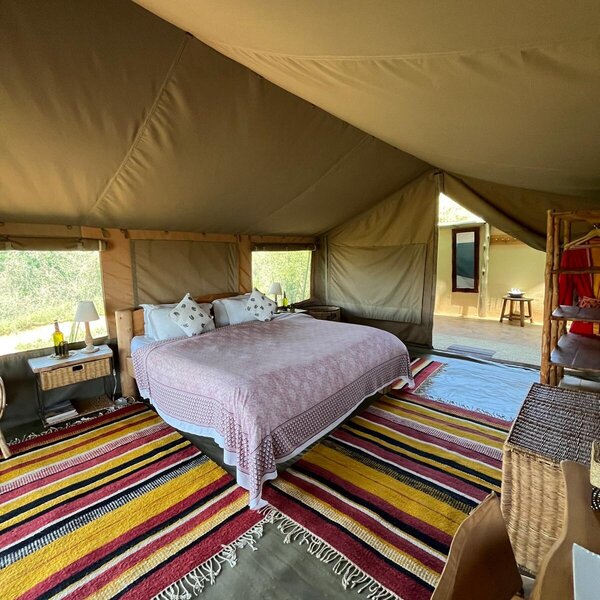
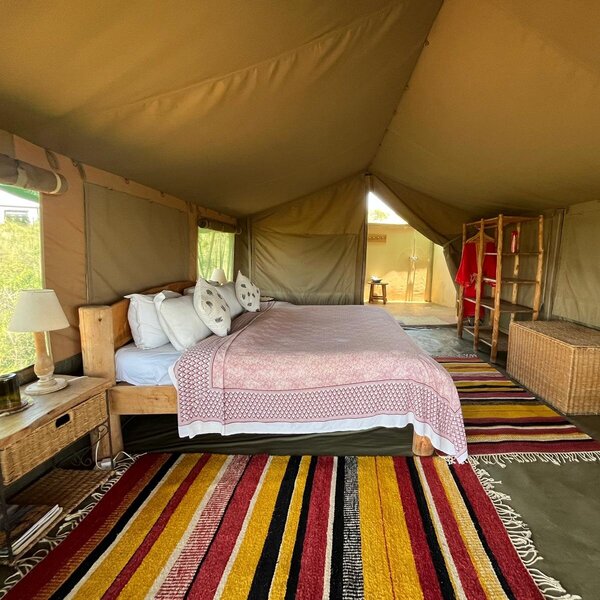
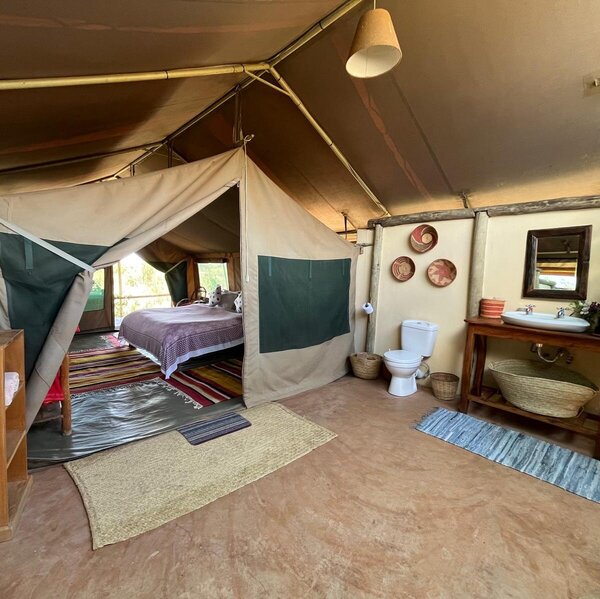
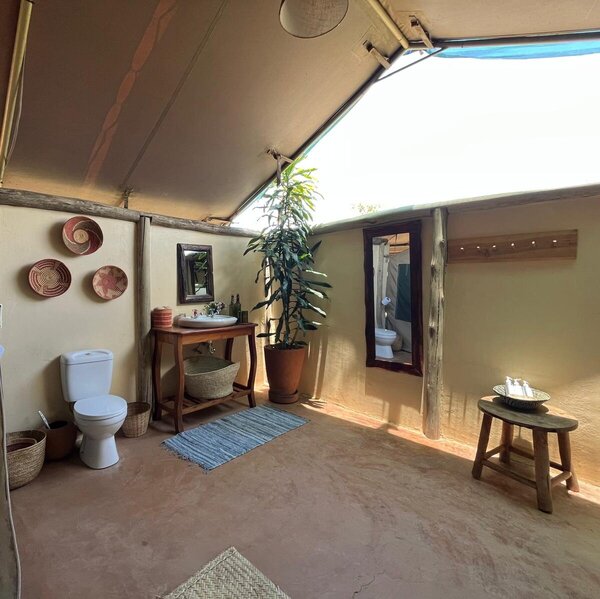
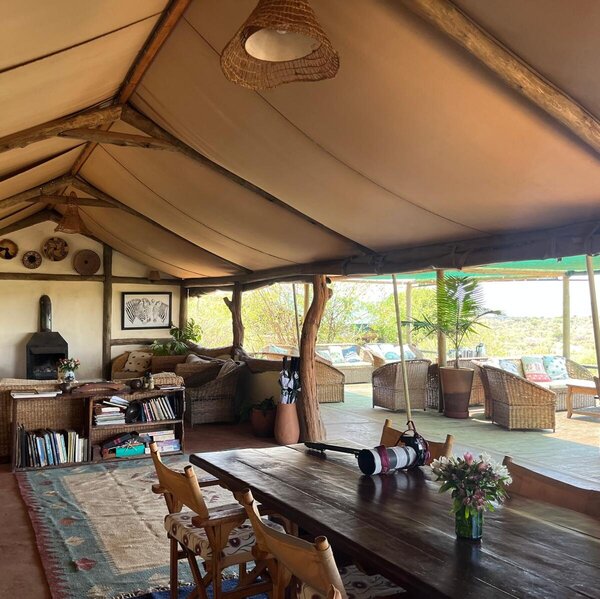
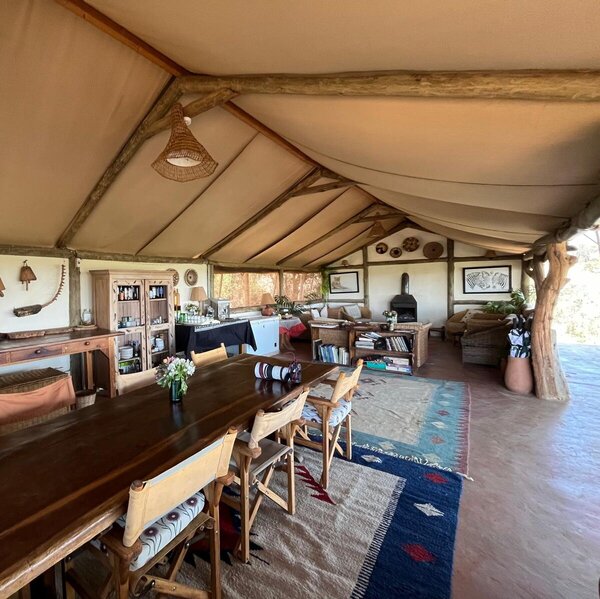
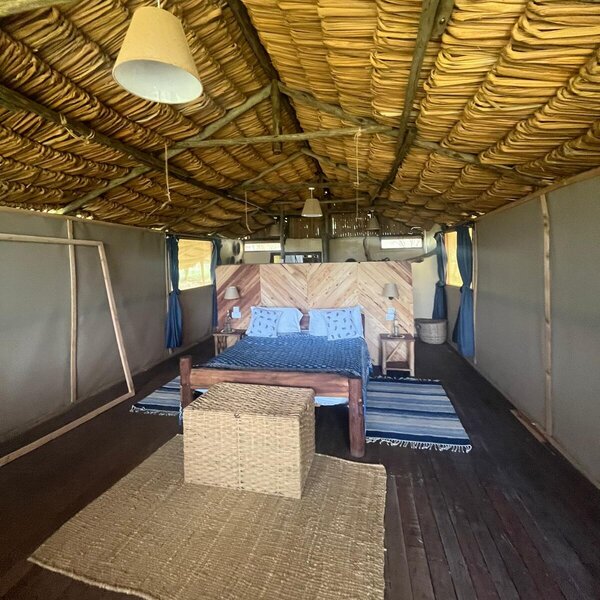
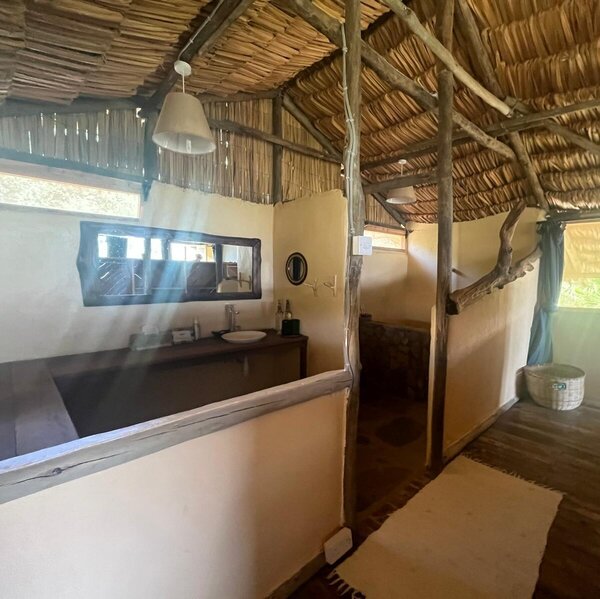
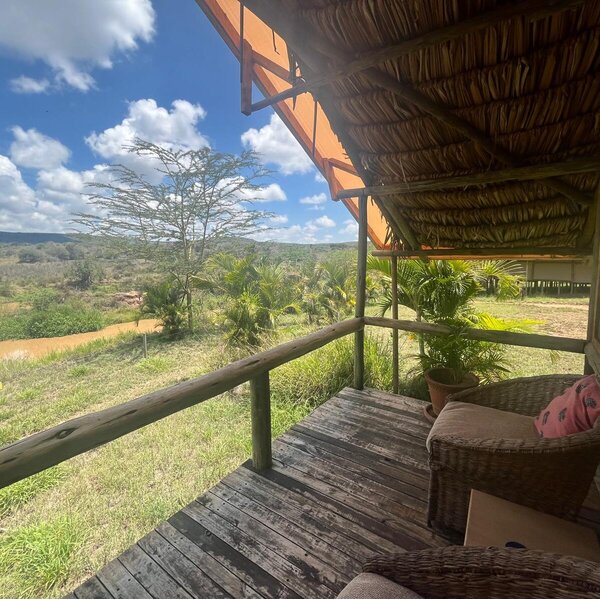
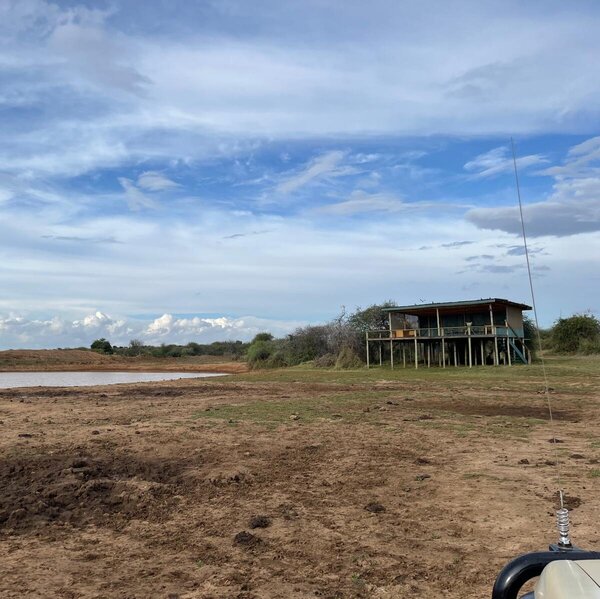
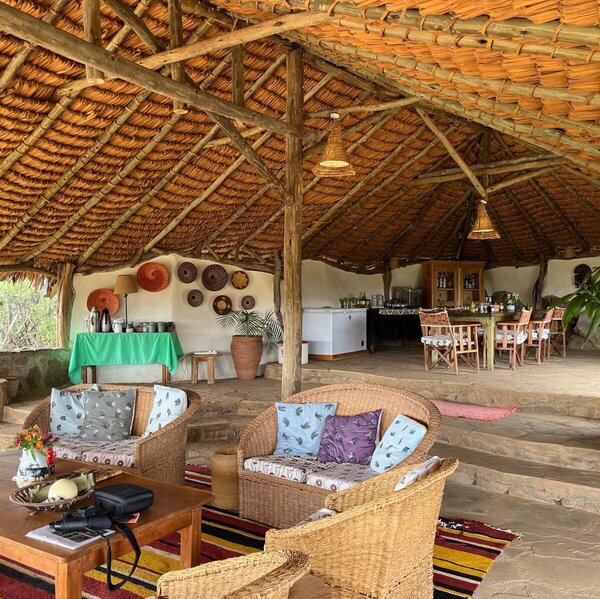
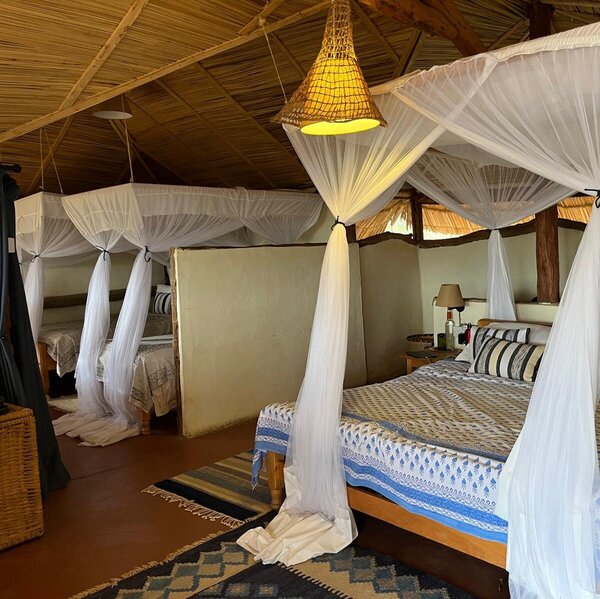
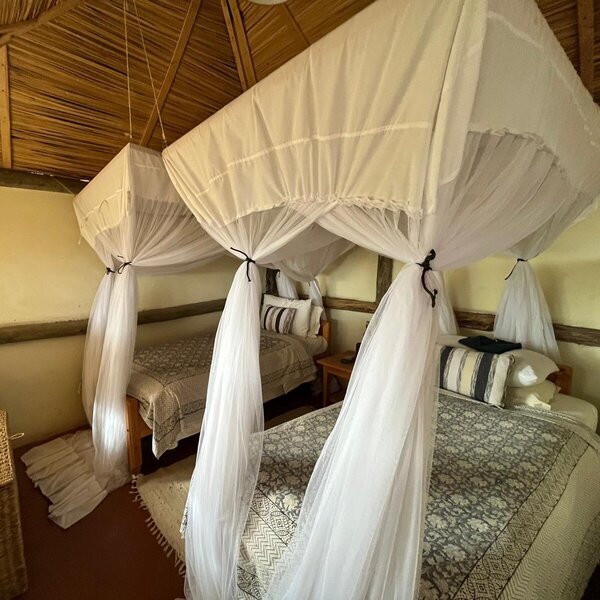
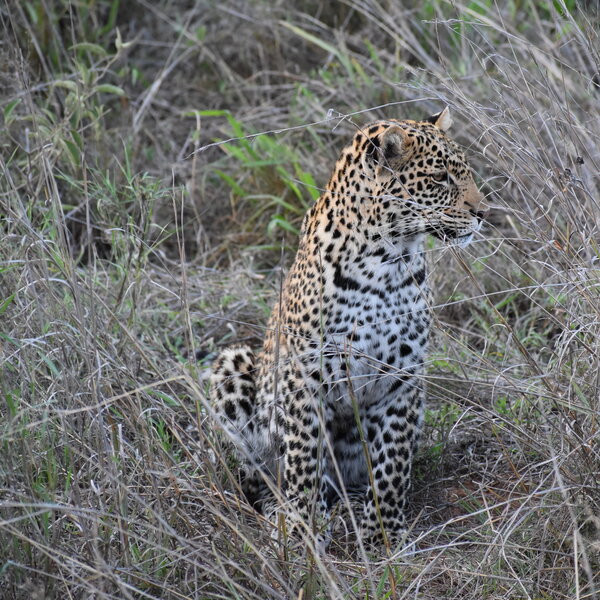
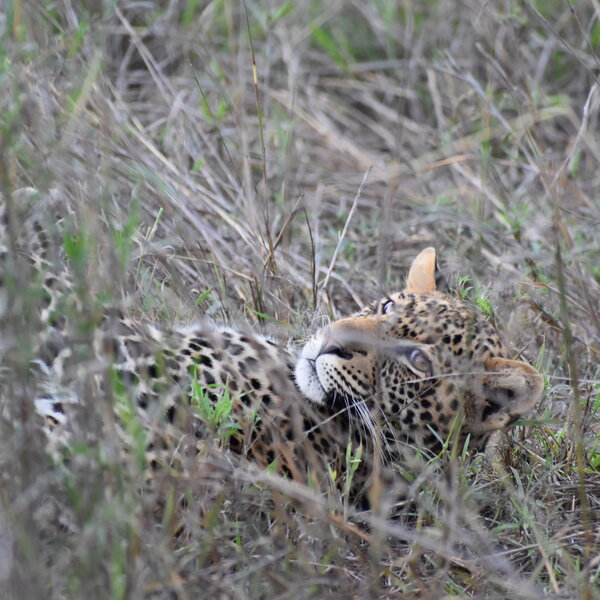
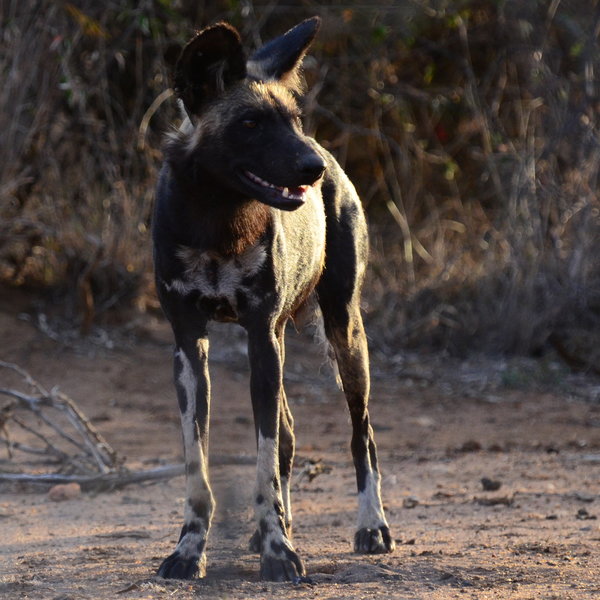
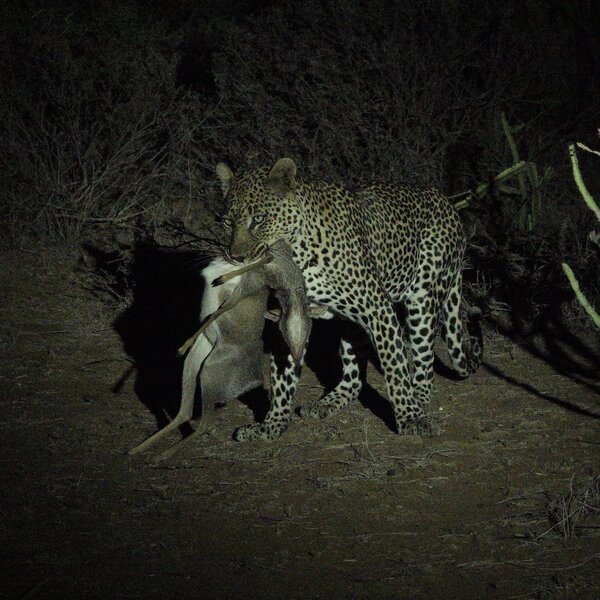
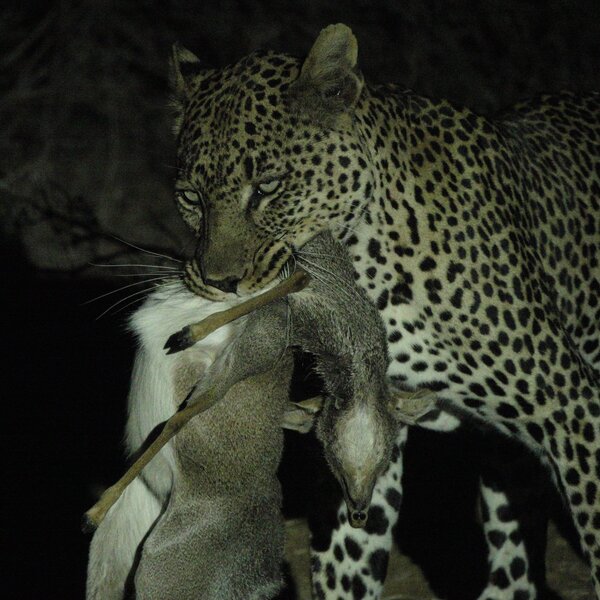
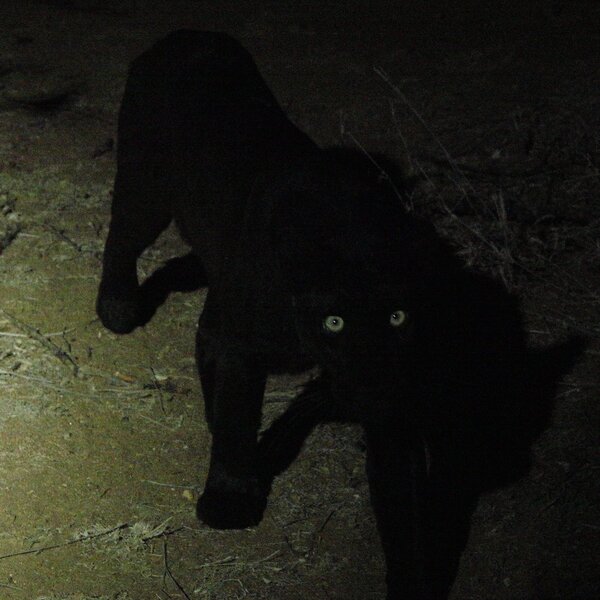
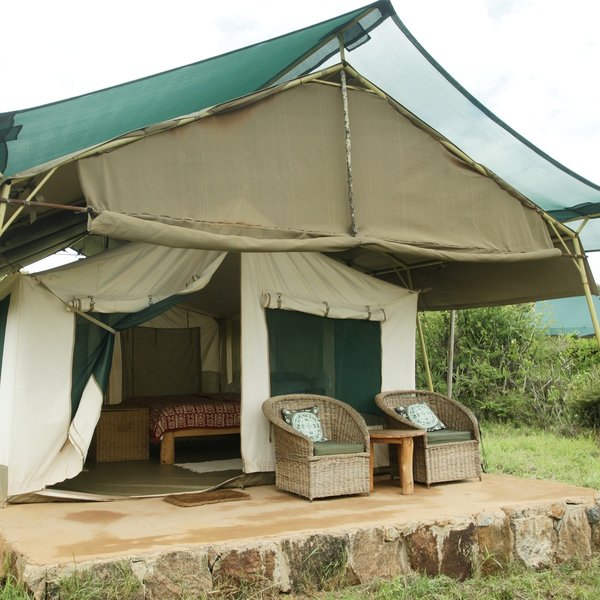
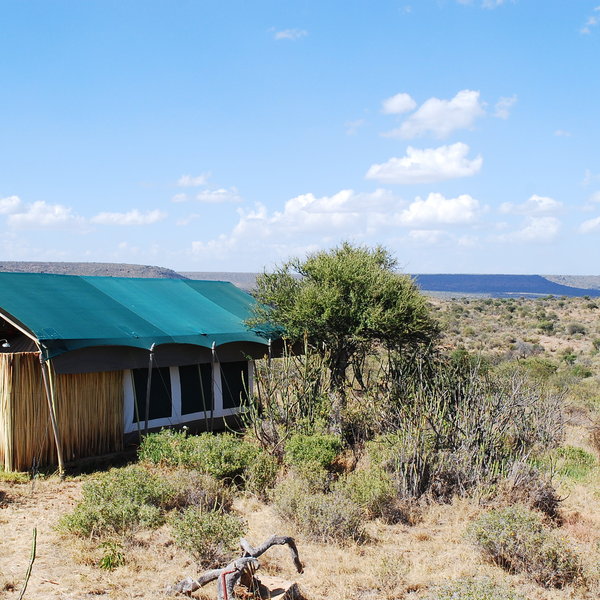
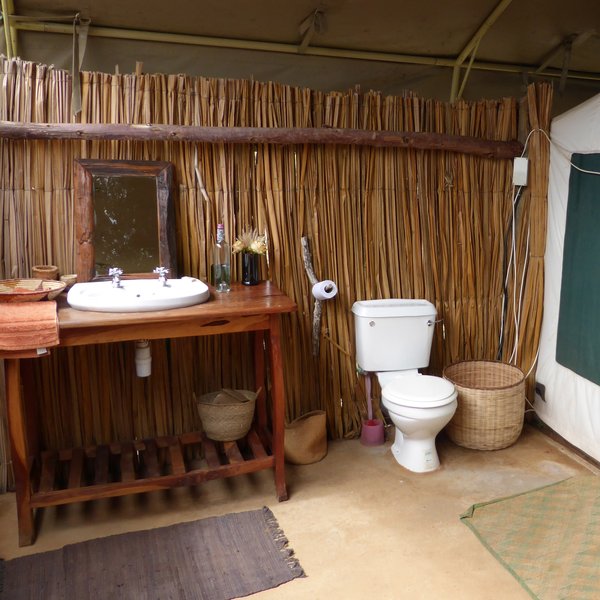
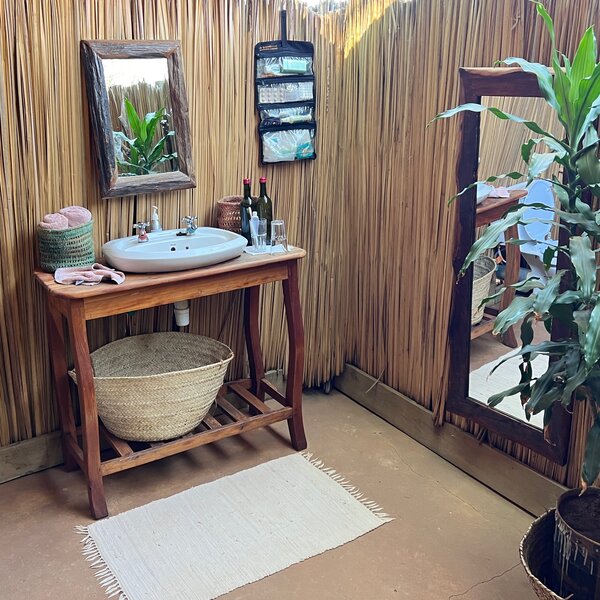
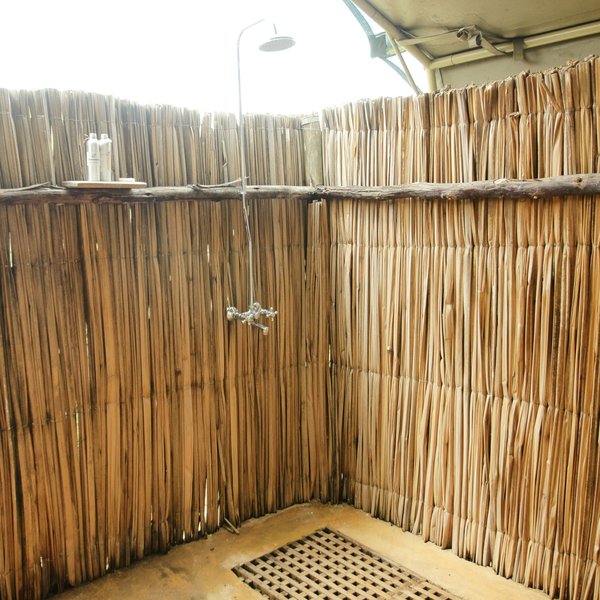
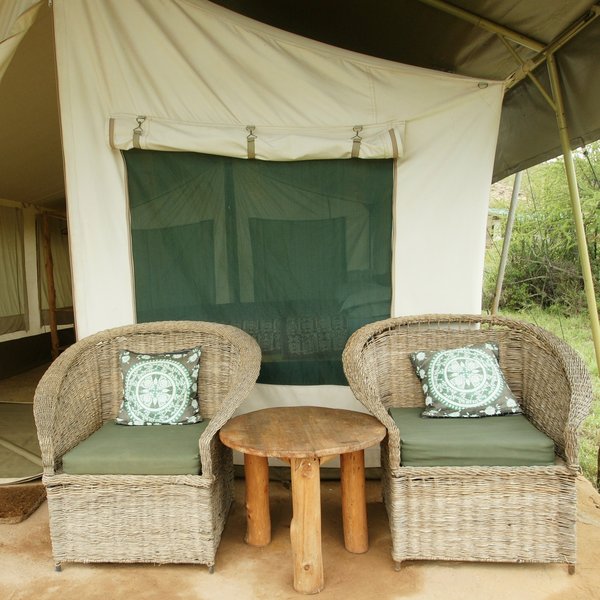
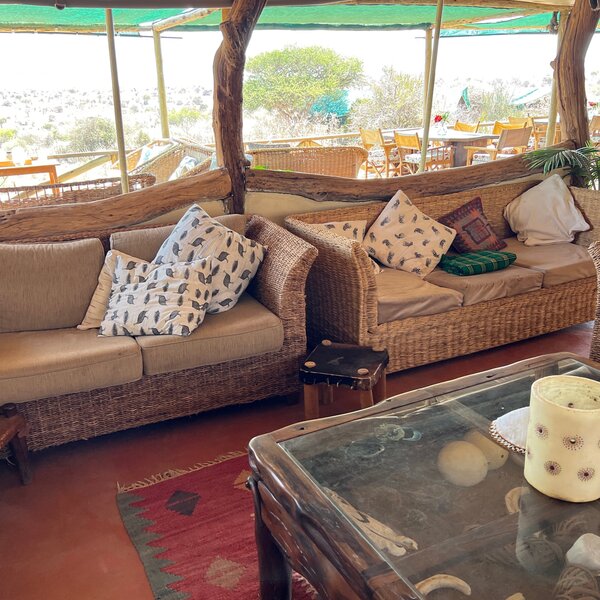
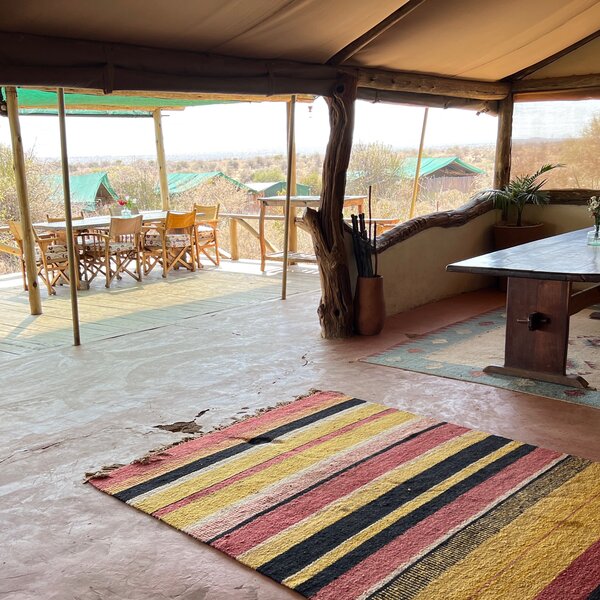
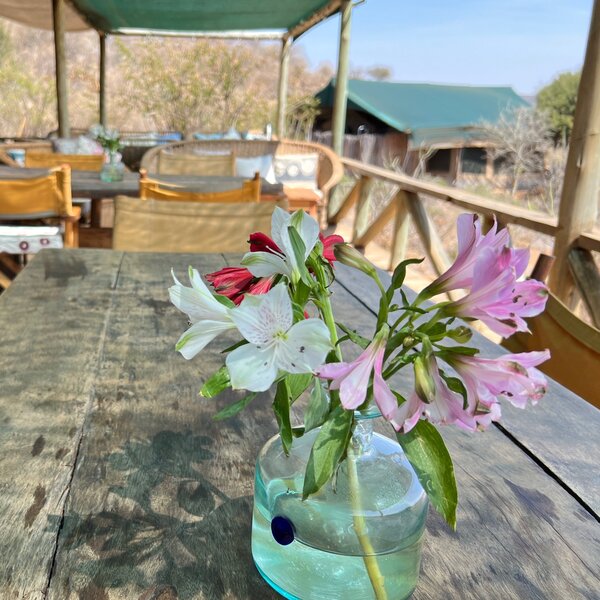
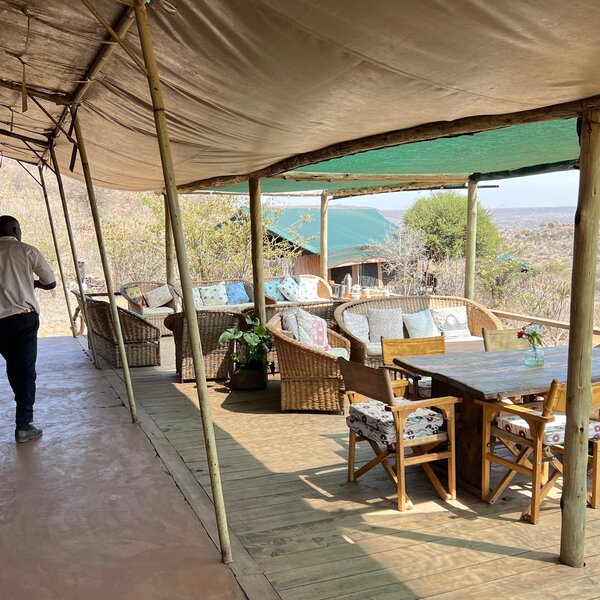
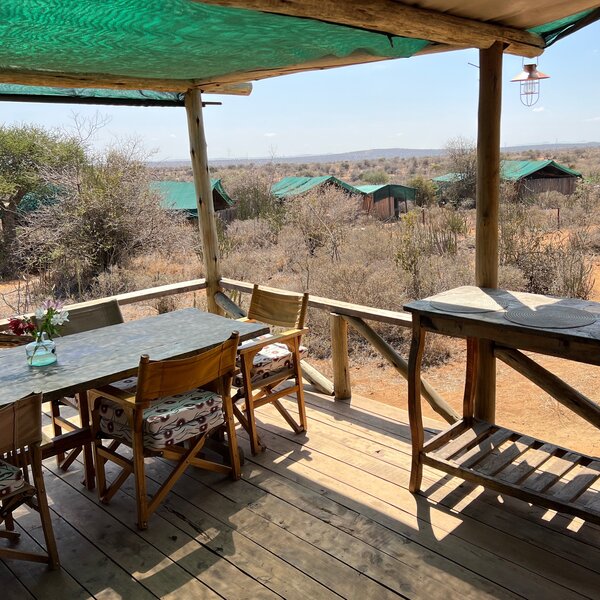
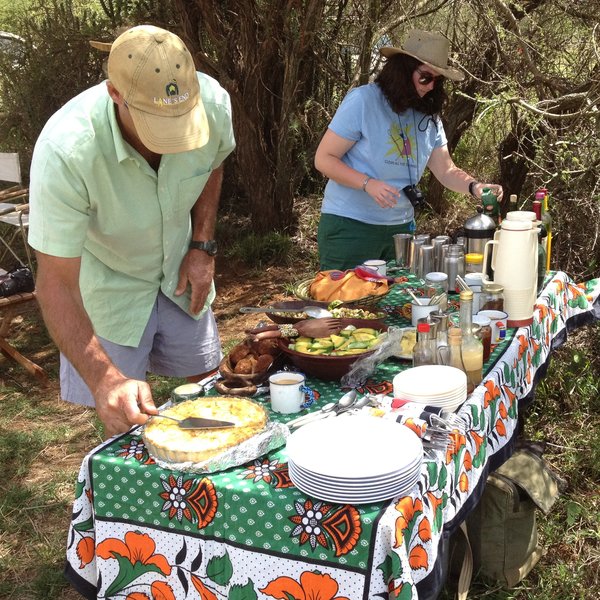
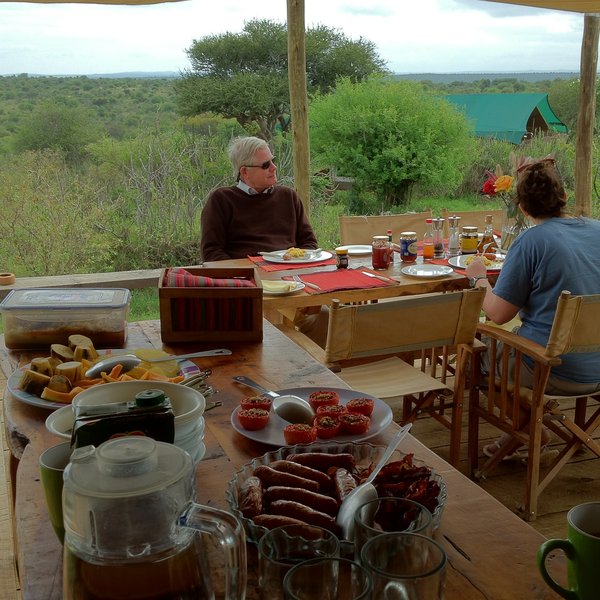
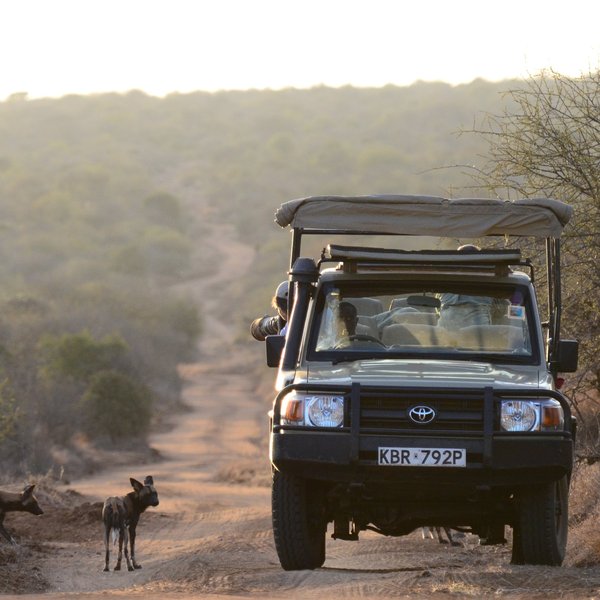
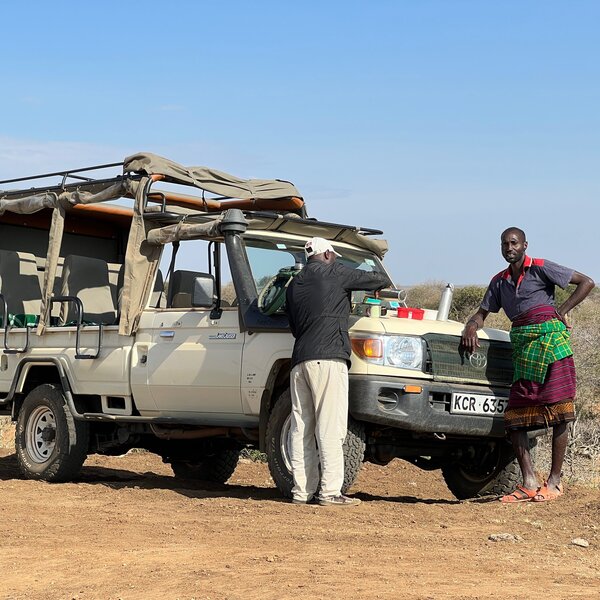
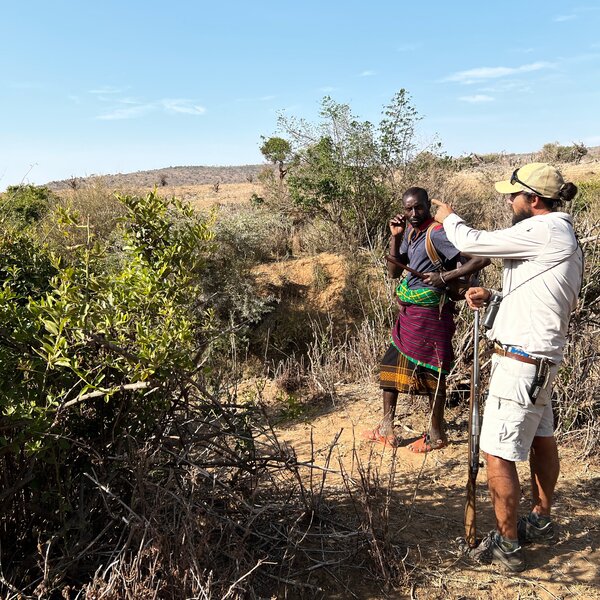
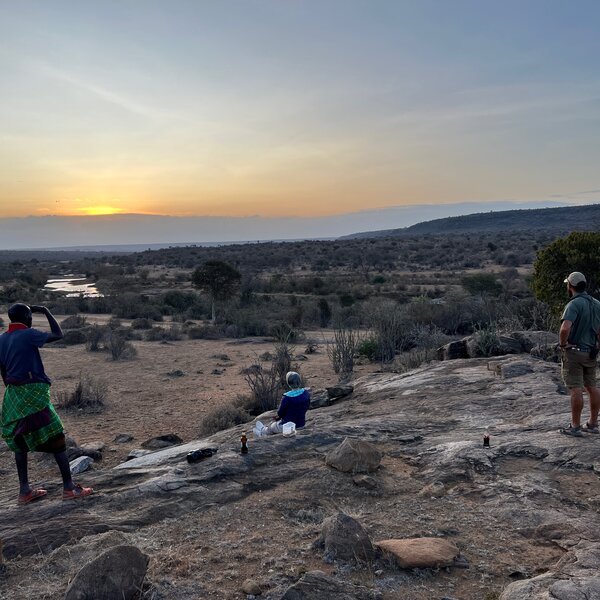
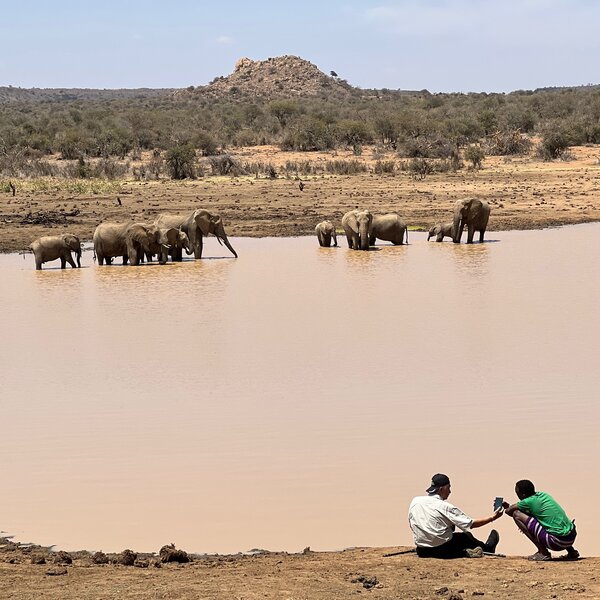
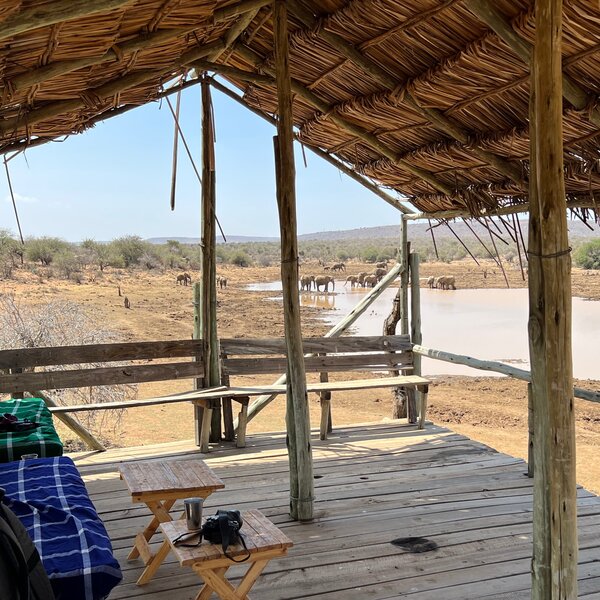
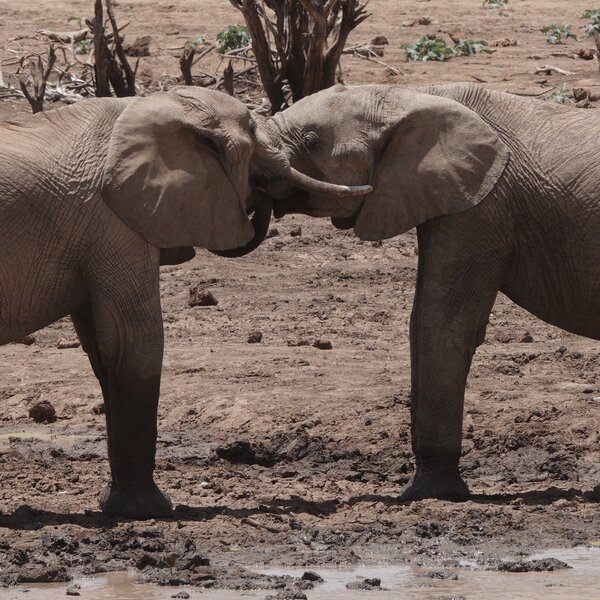
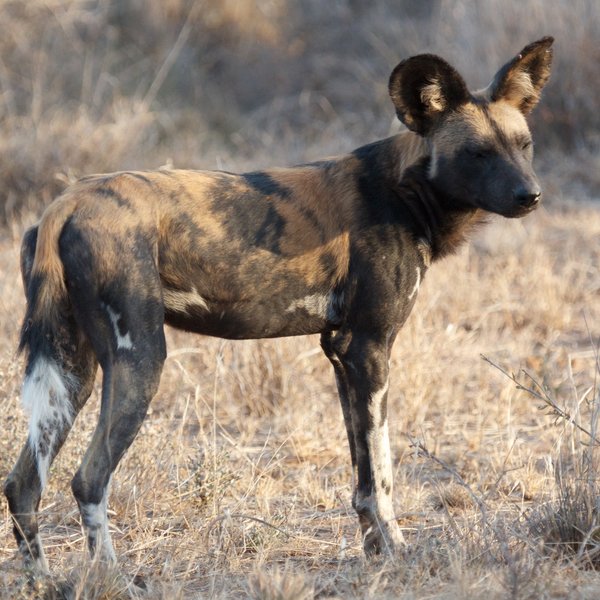
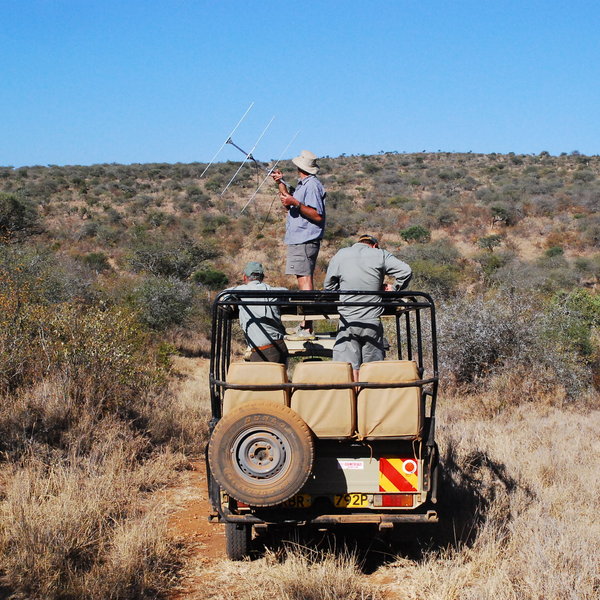
Expert Africa's gallery
When we travel we take lots of photos ourselves to give you a real and un-edited view of the safaris. See our 41 pictures of Laikipia Wilderness to get the candid view.
View gallerySafaris visiting Laikipia Wilderness
Just ideas, we'll always tailor-make a trip for you
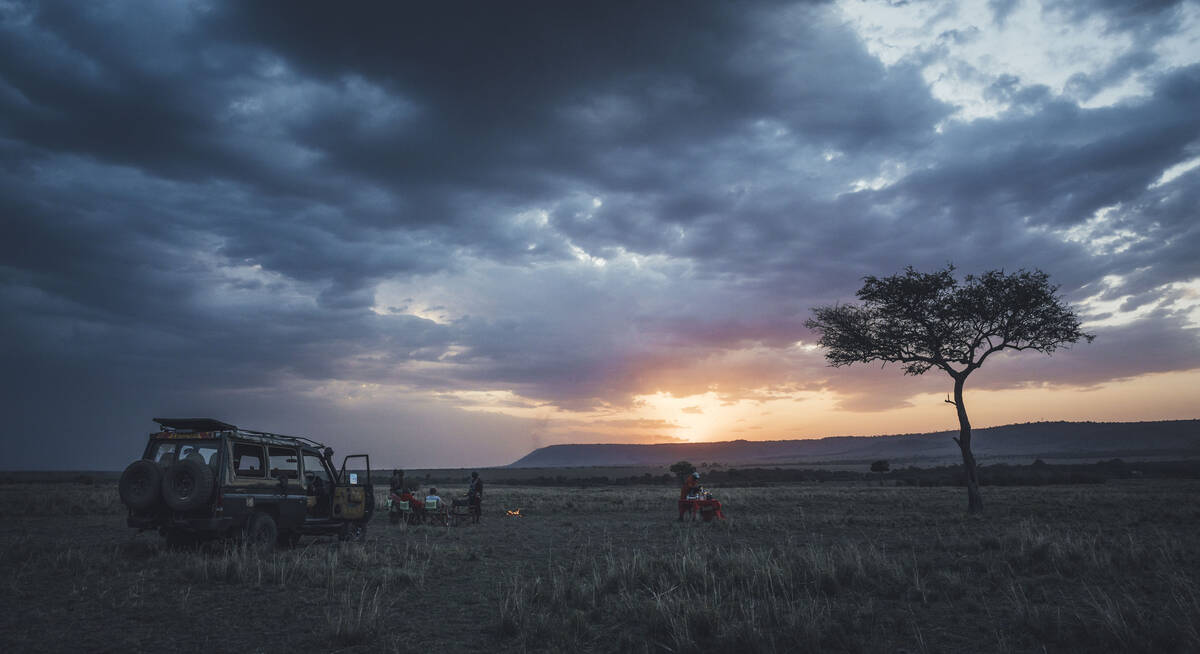
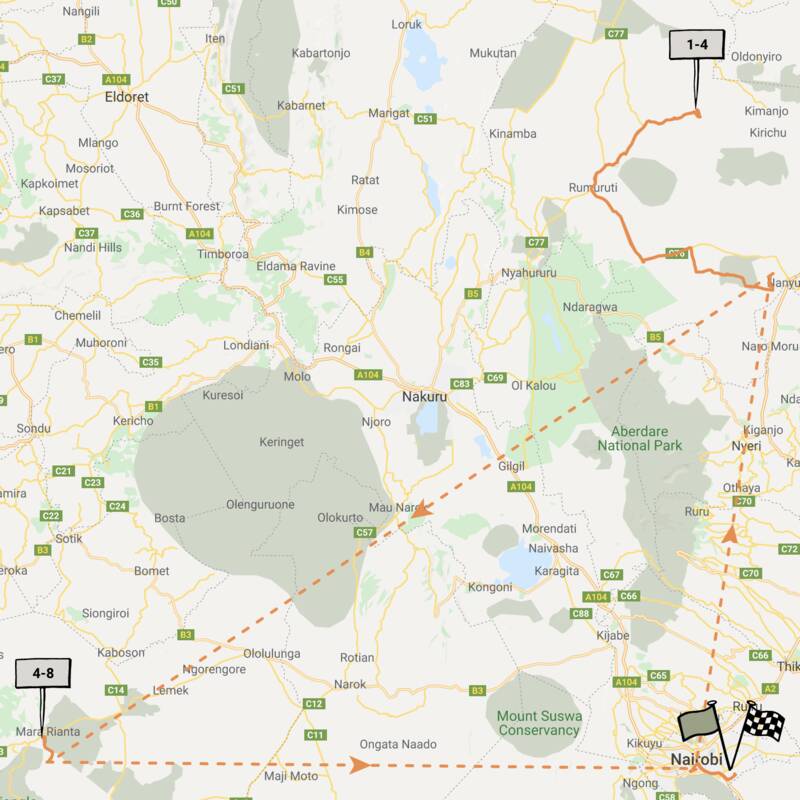
Greater Kudu Fly-In Safari
7 days • 2 locations • 1 country
NAIROBI AIRPORT TO NAIROBI AIRPORT
Experience a truly authentic bush experience on this safari at two classic tented camps, in Laikipia and the Maasai Mara. These are some of the best places to spot wild dogs and big cats.
Visiting Laikipia, Maasai Mara
US$8,130 - US$9,080 per person
Laikipia Wilderness: Our full report
Laikipia Wilderness opened in 2012 on the Ol Doinyo Lemboro Ranch about 2 hours drive north of Nanyuki.
The camp has now split into three divisions: Main Camp, River Camp, and Palm Camp - all spaciously spread to offer an intimate safari experience supported by a small team of excellent staff. It specialises in game walks as much as game drives, with fly-fishing, mountain biking, and river rafting and swimming also available.
Main camp's central areas consist of a large lounge/dining tent (the “mess") with cane furniture and a small library of reading material, leading out to a raised deck area where breakfast, lunch, and afternoon tea normally takes place. Dining is typically communal unless there are distinct groups, with the guides and camp managers joining guests.
The six guest tents in the Main Camp are a good size, simply furnished with comfortable beds, bedside tables and lamps, storage shelves, and verandas with cane chairs and day beds looking out across the bush. Four of them are designed for families, with twin beds in a clever additional wing (which can be zipped off so the tents can also be used as a conventional double). We love the large, open bathrooms that are accessed via a zip-up canvas wall at night (and left open during the day), with plumbed-in, super-hot, high-pressure showers heated by kuni boilers (wood fire boilers) that are located behind each tent.
Behind the very simple kitchen and back-of-house area, a nearby rocky bluff looks north across the Ewaso Narok river (which flows north to join the Ewaso Nyiro a few miles downstream), and on this beautiful vantage point you'll often have sundowners or dinners around the fire.
There's a deliberately basic infrastructure at Laikipia Wilderness that keeps it all very real, and very “bush". There's been virtually no landscaping of the camp area, so the narrow footpaths between the mess and the guest tents lead through natural scrub. It's a largely natural environment, welcoming to the local wildlife. You will certainly see dik-diks in camp and may well have cause to be grateful for the night-time askari who ensures that the local buffalos and leopards don't become too comfortable here.
If you're staying for more than a couple of nights (as nearly every guest does), fly-camping is usually offered, a few miles from camp, with small tents and bedrolls. This often takes place either around the campfire or on one of the camp's elevated sleepout decks (equipped with a discreet drop-loo), overlooking watering holes and dams that are usually frequented by hippos and elephants. You will always be accompanied by a trained firearms holder with a .375 rifle.
Animal “hosts" at camp include three friendly dogs. The dogs sometimes accompany game drives and walks and seem to have a calming effect on wild dog packs. They can be rumbustious and very playful, so guests need to have a positive attitude to man's best friend. The whole camp has a very relaxed feel, as if you were staying with friends at their makeshift rural homestead.
Close to the river, Laikipia Wilderness has an annexe in the shape of "River Camp", consisting of a mess area and kitchen, with five simple, ensuite guest cottages. River Camp is usually booked by large groups on an exclusive-use basis, but can also be used as an overflow camp on occasions.
The third branch of Laikipia Wilderness is the newer "Palm Camp", also consisting of a large open-plan mess area with bar, comfortable chairs, and dining area. The five rooms here are elevated on stilts, offering a front-row view over the river that runs right in front of camp. As with River Camp, Palm Camp is booked on an exclusive-use basis with a minimum occupancy of four guests, and works especially well for adventurous families or groups looking for a more private experience away from other camp guests.
In some camps, the comforts and atmosphere of the camp itself vie for attention with the out-of-camp activities on offer. That's not the case at Laikipia Wilderness. While the tents, lounge, mess and deck are perfectly comfortable (and the kitchen's output delicious), the most memorable aspects of a stay here are the day and night game drives (they have several Land Cruisers in various formats, including three photography vehicles and first priority black leopard vehicles – you can request a fully open one for game drives), morning and afternoon game walks, and really great guiding.
The typical driving style of the guides means you can make rapid progress through the bush, with game drives often taking place along the ranch's riverbanks where leopard sightings are comparatively frequent – the typically ultra-cautious driver/guide's manner behind the wheel might be a bit slow in the fast-moving world of wild dog packs and melanisitic leopard cubs. With no other camps or visitors across miles of rocky bush, you can go wherever your guide thinks he or she can drive – and then, when the vehicle can go no further, you get out and walk on, briefed in advance to follow the safety rules. This makes for an unusually robust approach to game viewing: you need to be prepared with suitable footwear for getting out of the vehicle at a moment's notice when your guide or spotter sees something interesting (and possibly getting back in again just as quickly). It's an approach to safaris that is a far cry from the slow and gentle style that is particularly common in small camps in the Mara. When tracking the dogs and cats, you need to be prepared to acquire the odd bruise and knock along the way.
The rewards of this rather rough and ready style include good opportunities to see the area's wild dogs. While the population was seriously reduced in 2017 following an outbreak of canine distemper which wiped out one of the two packs in this area, the other pack stabilised and numbers are increasing, and over the course of 2019-2021 two packs once again began denning in the district.
The pack that sometimes dens at Ol Doinyo Lemboro Ranch can range far and wide over hundreds of square kilometres, but it includes collared individuals and the camp usually has radio telemetry tracking equipment, so there's a reasonable likelihood of encounters, if sometimes fleeting ones. During the denning season, which varies each year on a roughly 9-10 month cycle, the den areas are deliberately not approached too closely. Once the pups leave the den, however, approaching the pups becomes easier. Throughout the year, the packs hunt daily and are fluidly mobile, so you can come across the adults almost anywhere and you're almost certain to have the whole experience to yourself.
When the dogs are denning in the neighbouring ranches of Mpala and/or Chololo, they sometimes operate a half-day-visit system (each ranch charges ~US$60 per person) that allows keen travellers to widen their wildlife searches while staying at Laikipia Wilderness. This can be particularly useful during the dogs' denning season, but it does need to be arranged in advance and cannot be guaranteed.
Ol Doinyo Lemboro Ranch includes a sizable dam, where the camp has built a simple raised pavillion, that is ideal for breakfasts, brunches, sundowners and sleepouts. Sitting here to watch nearly 100 elephants drink, bathe and play was an absolute delight.
During our last visit, the wild dogs were hunting in a remote area so we didn't see them, but the female black leopard whose territory falls around Laikipia Wilderness' camps was very much in evidence. In fact, we saw not only her but also three other leopards in the same afternoon game drive that included wonderful and sometimes surprising interactions between the individuals. Melanism in leopards is a recessive gene which generally doesn't favour the animal's life chances (a black leopard stands out by day and even at night under moonlight, while spotted leopards are notoriously hard to see until they move), but there is now a population of at least six black leopards in this part of Kenya, with territories on Ol Doinyo Lemboro and neighbouring Loisaba Conservancy.
Using a discreetly deployed spotlight, our vehicle drove through the bush in the dark to follow both the black leopard as she stalked dik-dik and her territorial rival (a large, spotted male leopard which relies on her hunting skills to steal some of his meals). The excitement of these encounters is intense, though photography is challenging and the camp is keen to keep expectations at a sensible level to allow the cats to behave naturally. The general wildlife we saw included large numbers of elephants (including while we were on foot, at close quarters, from across a dry stream bed), greater kudu, both plains and Grevy's zebras, and numerous giraffe. There are dik-diks everywhere – the wild dogs' and leopards' favourite prey – and the area certainly feels richly endowed with wildlife.
Keen birders will be delighted with the area, which has hundreds of northern species as well as those ranging across Kenya, and Palearctic migrants. Local specialities include rosy-patched bush-shrikes, vulturine guinea-fowls and impressive range of raptors, including black eagles, attracted by the area's rocky outcrops. Steve Carey knows all the birds, and their calls (and does a fair few passable imitations himself).
Activities
4WD Safari
Birdwatching
Guided walking safari
Kayaking
Night drive
Private activities
Families & children
- Attitude towards children
- Children are always welcome. However, this is a very relaxed, unfenced camp and children’s safety is definitely the responsibility of their parents.
- Property’s age restrictions
- None, but the camp may be selective, so it may not be possible to host a very young family in high season, especially if there are no other children at camp at the same time.
- Special activities & services
- Fishing, river rope swings, river rafting in the fairly shallow river (for older children, no life jackets provided), kayaking, cave-exploring, and rock-scrambling. Guide Joseph does tracking walks for fives and up, with bow and arrow skills-training.
- Equipment
- Apart from a baby cot and high chair, there is no specialist equipment for younger children.
- Generally recommended for children
- Keen outdoors- and animal-loving children will adore this camp and its robust style, but tiny ones will need careful supervision at all times.
- Notes
- Experienced, but not qualified, ayahs and child minders are available from housekeeping staff.
Food & drink
- Usual board basis
- Full Board & Activities
- Food quality
- We have always thought the quality of meals at Laikipa Wilderness is very good, and particularly so considering the very basic infrastructure at the camp, and again on our most recent visit we were not disappointed.
The day starts with a hot drink in your room, or at the mess along a snack breakfast before the morning activity, with a bigger breakfast on return, or out in the bush. A good range of fruit, cereals, eggs, bacon, sausage, and beans is always available, together with homemade bread and toast and preserves.
Lunch or brunch (often eaten on the big deck by the dam while watching elephants splashing in the water), is usually a wonderful buffet selection of colourful salads and freshly baked bread, along with quiche, pizza or a similar light food.
Dinner is either served out in the bush or back at camp. On one stay we had a barbecue on the sandy banks of the river. When we got there the team had already set up dinner with a blazing log fire and a table laden with drinks and food. On the fire they cooked a large fillet steak, which was served with potatoes filled with cheese and mixed vegetables roasted on the fire. This was followed with a very tasty pineapple crumble. - Dining style
- Group Meals
- Dining locations
- Indoor and Outdoor Dining
- Further dining info, including room service
- Meals can be had anywhere you want, including at your tent. Guests can also request a private rock dinner (on the rocky viewpoint), or bush dinner (in the bush somewhere).
- Drinks included
- All available drinks are included in the rates, which means the usual soft drinks, beer and house wines. Guests wanting particular spirits or Champagne could order ahead (at extra cost) or bring their own.
Our travellers’ wildlife sightings from Laikipia Wilderness
Since mid-2018, many of our travellers who stayed at Laikipia Wilderness have kindly recorded their wildlife sightings and shared them with us. The results are below. Click an animal to see more, and here to see more on our methodology.

100% success

100% success

100% success

100% success

93% success

76% success

68% success

63% success

58% success

48% success

46% success

9% success

0% success

0% success
Getting there
- Location
- Laikipia, Kenya
- Ideal length of stay
- We suggest four nights to experience all that this area has to offer.
- Directions
- It is a 1.5-to-2-hour drive from Nanyuki airport, accessed by light aircraft from Nairobi Wilson Airport. Alternatively, fly to Loisaba airstrip, on the conservancy of the same name, and do a 1.5 hour transfer (or a 2-hour game drive) to reach camp.
- Accessible by
- Fly-and-Transfer
Special interests
- Family safaris
- This camp has an adventurous, outdoors feel. The owners’ children have grown up with the camp and this shows in their family-friendly approach and the immersive bush experiences offered. Several spacious family tents accommodate 4 to 6 people.
- See ideas for Family safaris in Kenya
- Solo safaris
- Laikipia Wilderness is one of the few camps in Laikipia not to charge a single person supplement all year round and its focus on wildlife and immersion in the bush makes it a great choice for a safari enthusiast travelling on their own.
- See ideas for Solo safaris in Kenya
- Birdwatching safaris
- Keen birders will be delighted with the area, which has hundreds of northern species as well as those ranging across Kenya, and Palearctic migrants. Local specialities include rosy-patched bush-shrikes, vulturine guinea-fowls and impressive range of raptors, including black eagles, attracted by the area's rocky outcrops.
- See ideas for Birdwatching safaris in Kenya
- Photography safaris
- Laikipia Wilderness has been a consistent draw for keen wildlife photographers since it opened, with sightings of wild dogs frequent, and periodically reliable. Similarly, the appearance of black leopards near the camp has provided excitement and challenge for photographers.
- See ideas for Photography safaris in Kenya
- Walking safaris
- This camp specialises in game walks, encouraging exploration of Laikipia’s bush. The guiding is energetic and enthusiastic, and guests regularly find themselves leaving their vehicle to follow sightings far from the beaten track.
- See ideas for Walking safaris in Kenya
- Wildlife safaris
- Laikipia Wilderness and Steve Carey are known for wild dog tracking. Two packs den nearby, with frequent cub and hunt sightings. The area's dense dik-dik population supports wild dogs and high leopard numbers, and the camp's black leopards have become a famous attraction.
- See ideas for Wildlife safaris in Kenya
- Scenic walking & hiking
- Owned and run by a true bushman with exhilaratingly hands-on instincts, Laikipia Wilderness specialises in phenomenal guided walks. Game drives also often feature walking stops, when you follow tracks on foot where the vehicle cannot reach.
- See ideas for Scenic walking & hiking in Kenya
Communications
- Power supply notes
- There is a backup generator but it is rarely needed. Charging your phone is possible within your tents, but charging for larger batteries and devices is done in the WiFi tent. No hair dryers can be used. Hot water is provided by wood-fired boilers behind each tent.
- Communications
- There is WiFi hut, just next to the main area and the strong Starlink connection also covers the communal mess tent. Safaricom cellphone network is also available, but only in the kitchen where there is an aerial.
- TV & radio
- There is a TV in Steve's house that you may be able to watch important sports fixtures on.
- Water supply
- Borehole
- Water supply notes
- River water is pumped up for the main guests’ bathroom supplies and good hot water is available more or less 24/7, heated by wood-fired kuni boilers at the back of each tent. Drinking water is brought in from Nanyuki’s mains supply and then treated in camp and supplied to guests in flasks. Bottled water is used on walks and drives.
Health & safety
- Malarial protection recommended
- Yes
- Medical care
- Some staff have had first aid training from Medex (a UK, ex-military training course).
- Dangerous animals
- High Risk
- Security measures
- There are two camp askari on duty at night. There is also a 15-person ranch security team who stay aware of who is on the ranch and who is driving along the road that bisects it.
- Fire safety
- There are fire extinguishers in the kitchen, by the vehicles and in the office. The staff have not yet had any fire training, but this is planned.
Useful info
- Disabled access
- On Request
- Laundry facilities
- Laundry is included. It's hand-washed and line-dried. Ladies underwear can be included, but soap is also provided in your bathroom.
- Money
- There are no tent safes, but valuables can be given to the managers for safekeeping in their safe. No foreign exchange can be done.
- Accepted payment on location
- Payments for extras can be made via cash – Kenya Shillings, US dollars, Euros and Pounds are all accepted – or by Visa or MasterCard with a 2.8% surcharge. The staff gratuity box is in the office, located by the parking.
Plan and book your trip with Expert Africa
All of our trips are tailor-made, so we'll always adapt them to suit you. Talk to an Expert and let us plan and arrange your perfect trip.

Talk to an Expert
Call or email us now! We’ll match you with the Specialist in our team who is best suited to help you. Then together we can start planning your trip.

Set up your itinerary
Based on our experience and your ideas, your specialist will create a detailed, costed itinerary. We’ll refine it together, until we have a trip that you’re perfectly happy with.

Prepare for your trip
The same Specialist will make the seamless arrangements for your trip, send you detailed travel documents, and be available to answer any questions before you depart.

Travel with peace of mind
After you set off, you’ll be cared for by our partners in Africa, most of whom have worked with Expert Africa for decades. And if you ever need us urgently, we’re available 24/7.

When you return
We love to learn about your trip, and so will always be grateful if you’ve the time to give feedback to your Specialist when you return.
Laikipia Wilderness's location
Look closer at the environment and surroundings of Laikipia Wilderness.
Excursions from Laikipia Wilderness
Optional extra day-trips and excursions possible whilst you're staying at Laikipia Wilderness. Talk to us: these are usually best arranged before you go.
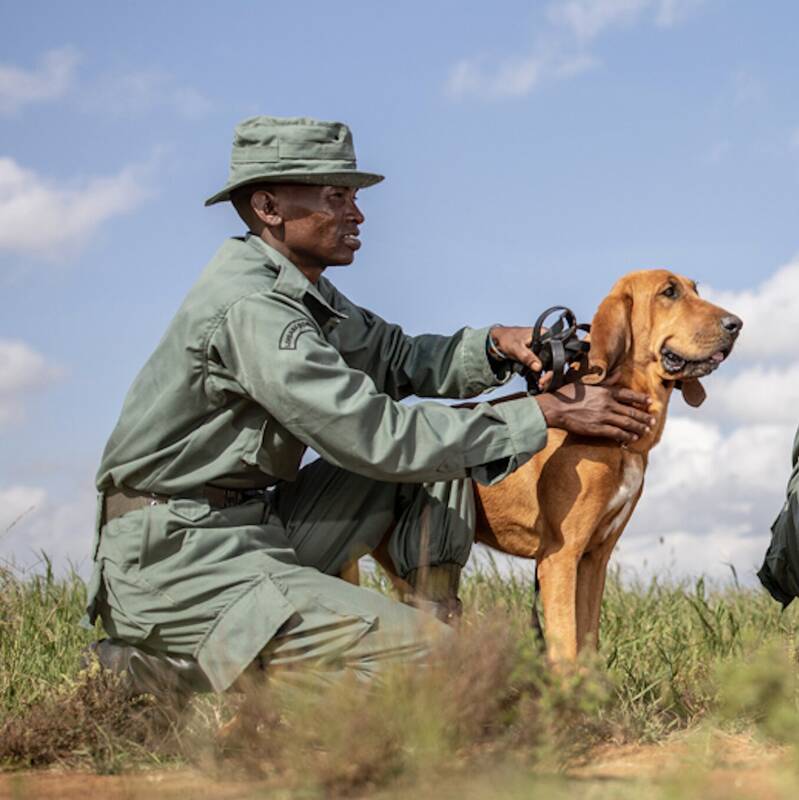
Anti-poaching Dogs Display
Approx. one hour
Interact with the dog keepers and learn about what it takes to look after the specially trained canine team. Guests are encouraged to try and evade the sniffer dogs, not only is this great fun, but it helps to offer genuine training for the dogs.
More about Anti-poaching Dogs Display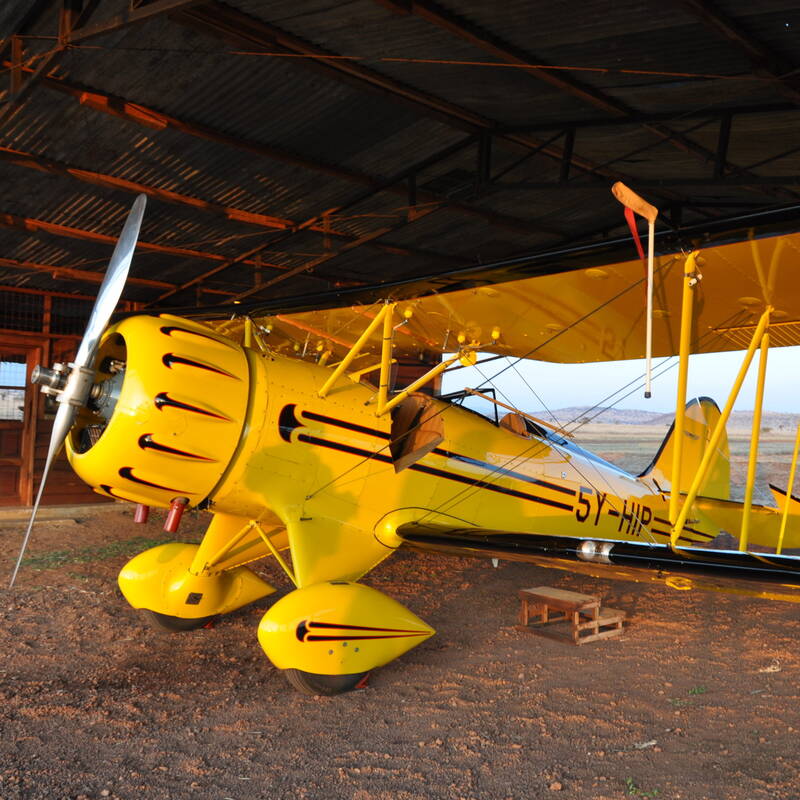
Scenic Biplane Flight on Lewa Conservancy
30 or 60 minute flights
Soar high and fly low over the rolling hills and plains of Laikipia’s famed Lewa Conservancy, on a scenic biplane flight. Offering you the chance to spot wildlife from the air, this flight takes place in an open-cockpit WACO biplane – a truly unique excursion in Kenya.
More about Scenic Bi-plane FlightOther lodges in Laikipia
Alternative places to stay in this same area.
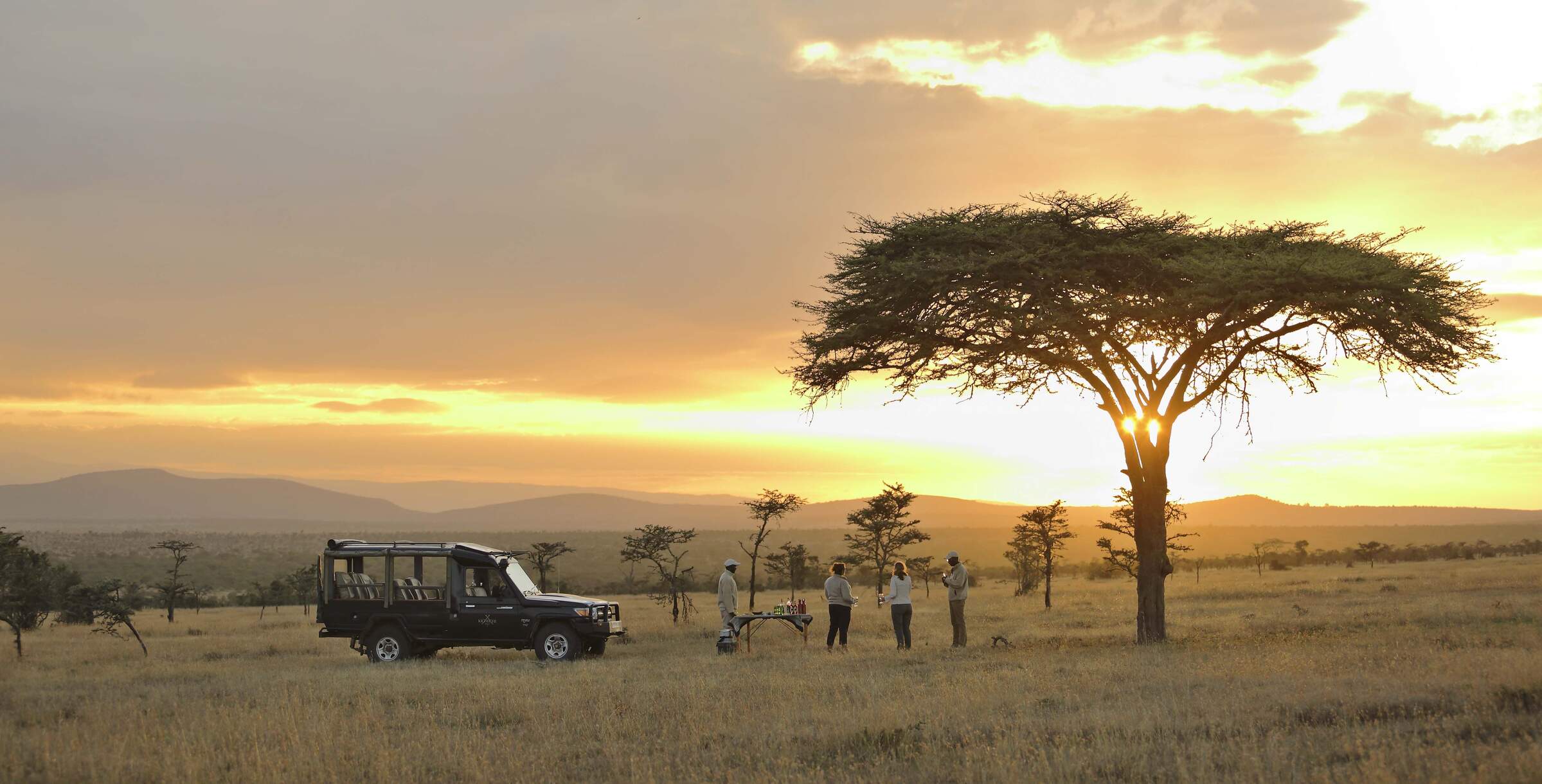
Kicheche Laikipia
Kicheche Laikipia is the most luxurious tented camp of the handful of places to stay in the Ol Pejeta Conservancy in central Laikipia.
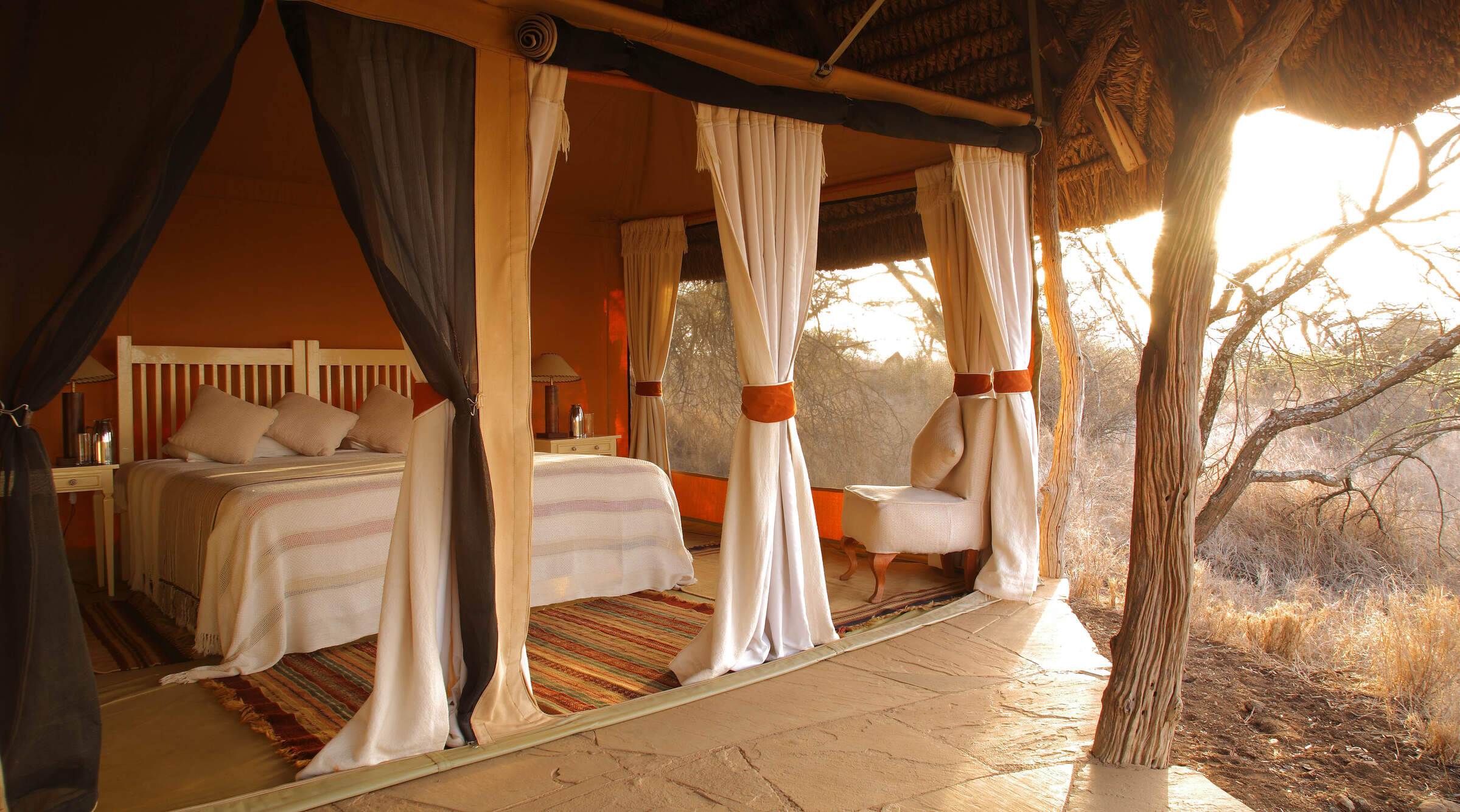
Lewa Safari Camp
Lewa Safari Camp is a comfortable and homely tented lodge, located in the Lewa Conservancy and offering a relatively exclusive safari away from mass tourism.
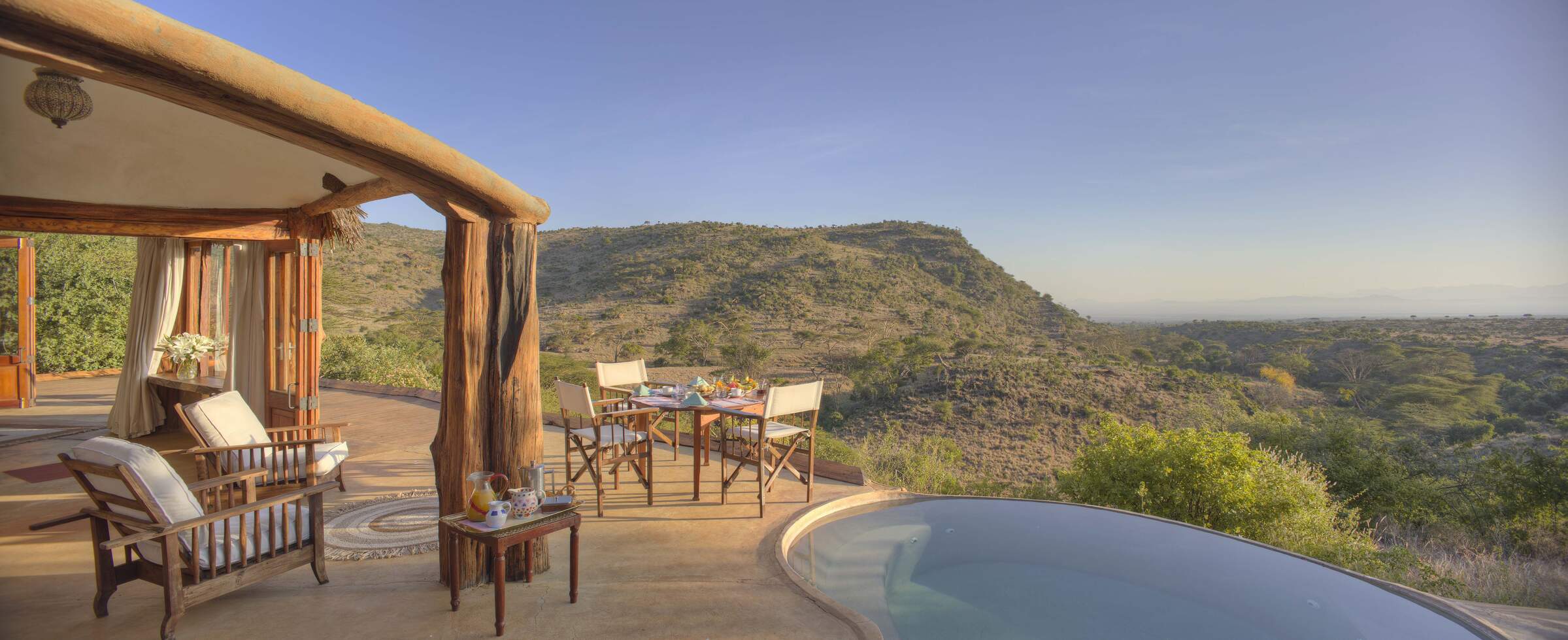
Lewa Wilderness
Lewa Wilderness is a comfortable, fenced safari lodge with nine cottages, great views and a huge range of activities.
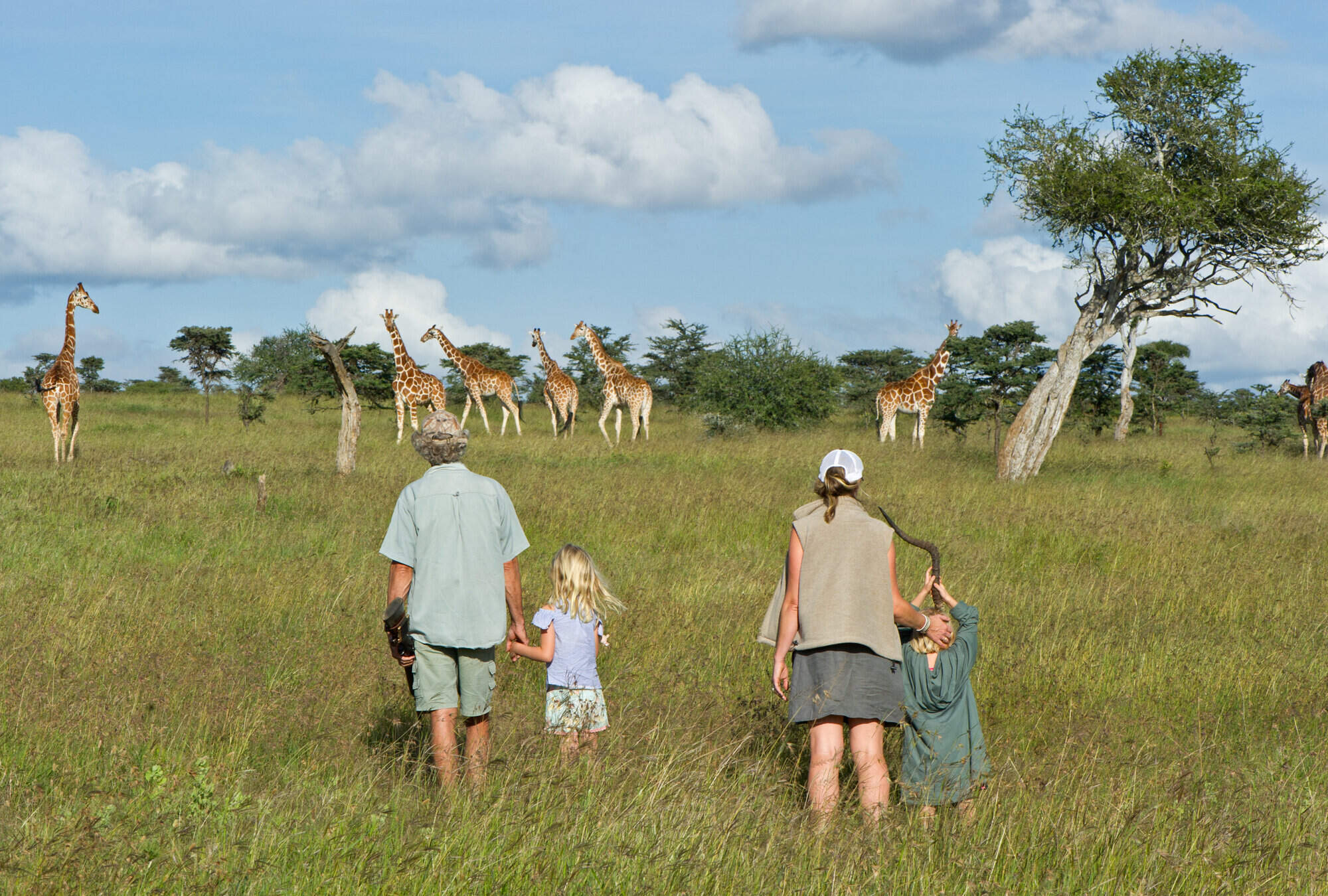
El Karama Lodge
El Karama is a comfortably rustic, very personal, riverside eco-lodge on a game-rich private ranch in Laikipia, an hour’s drive north of Nanyuki airport.
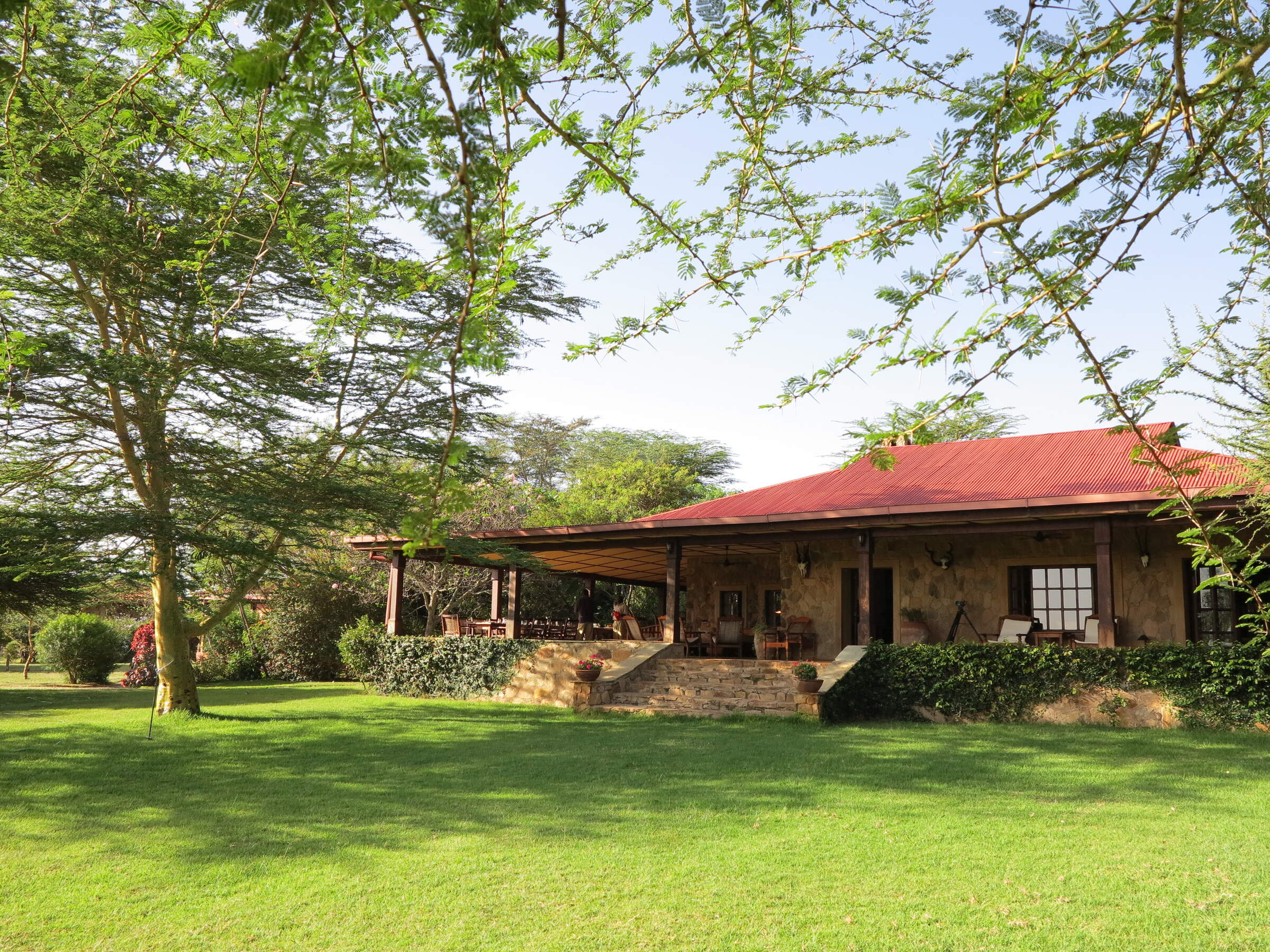
Sosian
Sosian Lodge is a distinctive, estancia-style ranch house on a former cattle ranch, with great opportunities for riding, relaxing and seeing wild dogs and other savannah wildlife.
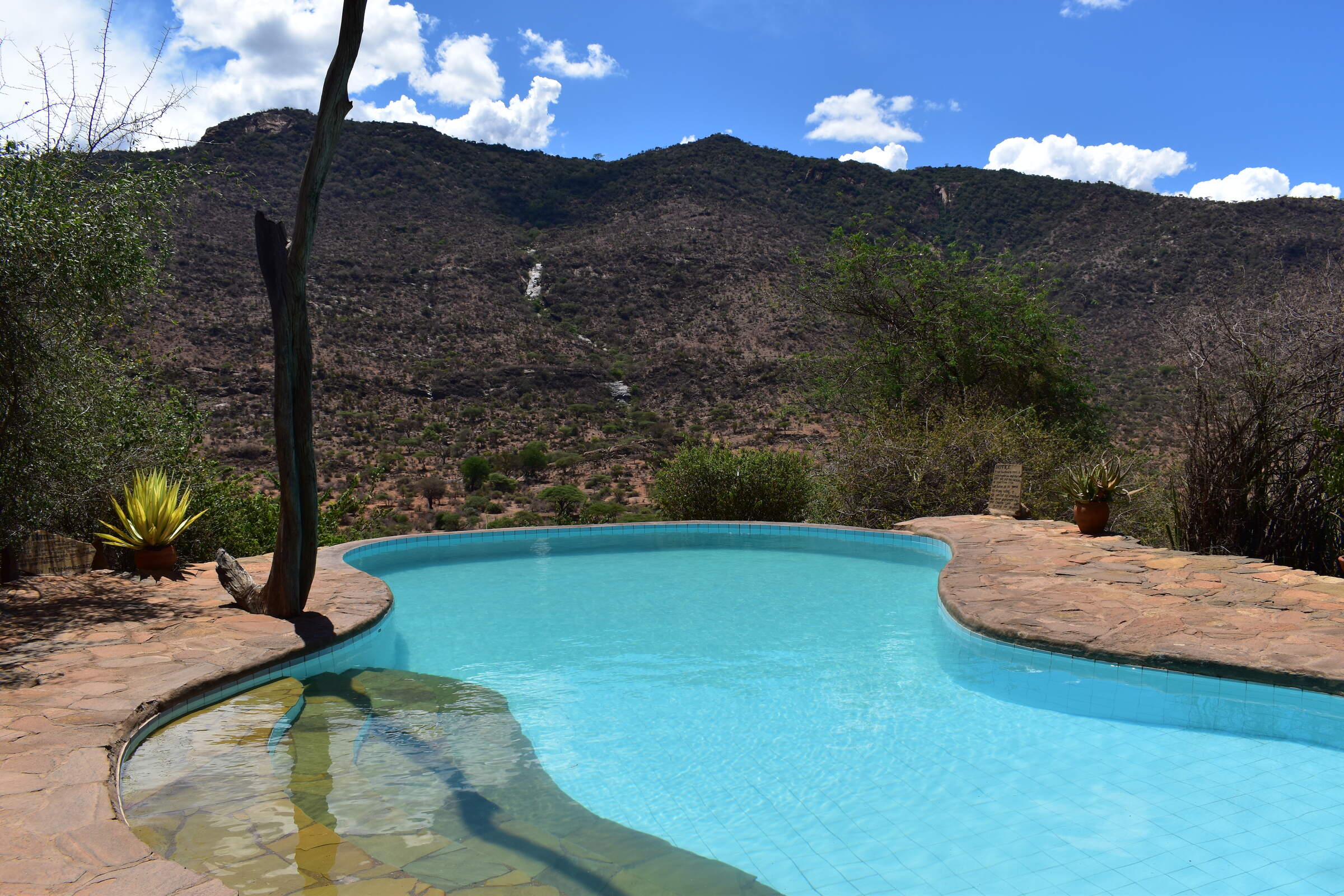
Il Ngwesi Eco-Lodge
The community-owned Il Ngwesi Eco-Lodge sits atop a small hill in the remote Il Ngwesi Group Ranch, a two-hour drive north of Lewa Conservancy in north-eastern Laikipia.
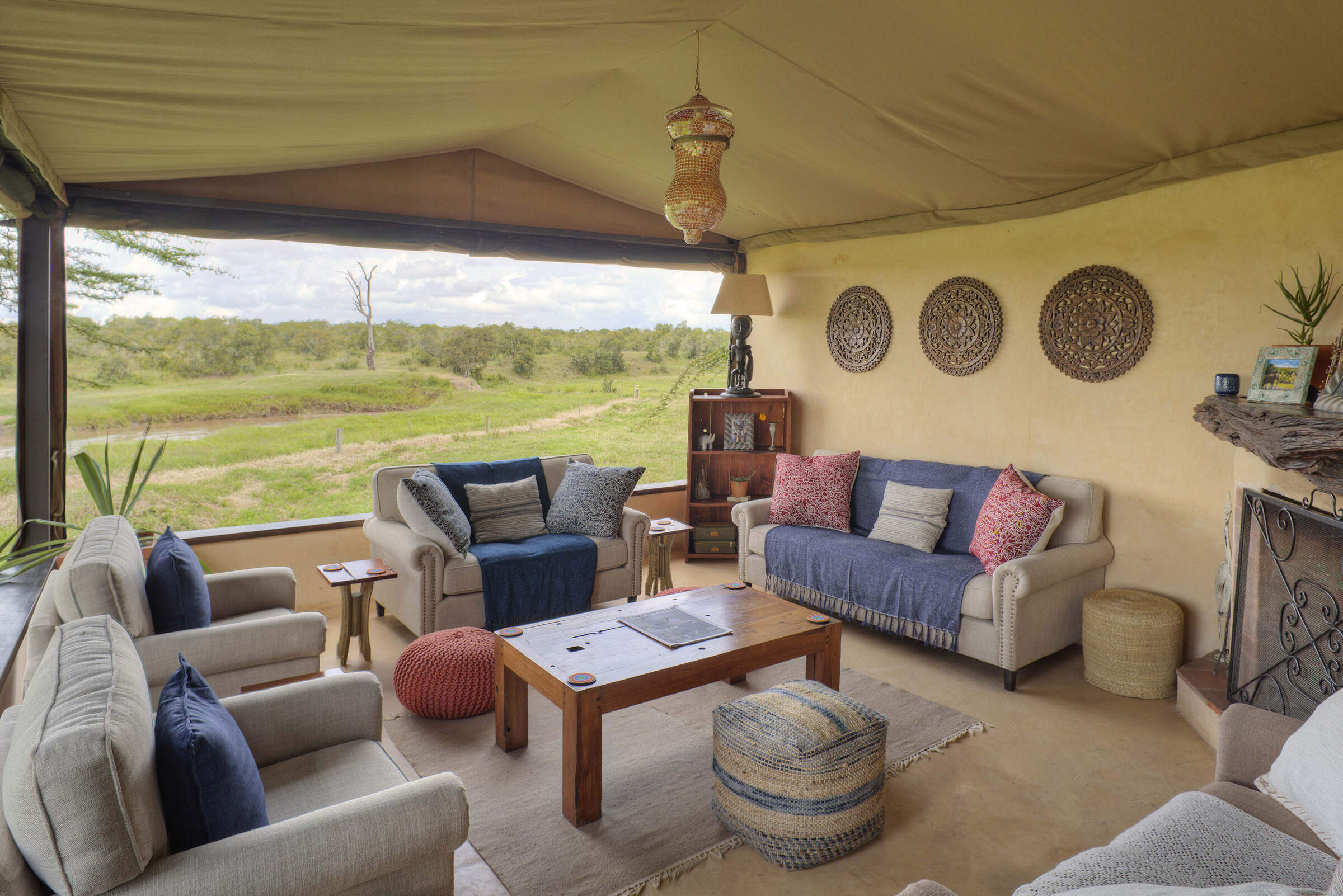
Ol Pejeta Bush Camp
Ol Pejeta Bush Camp is a simple camp, with comfortable tents, delivering an authentic wilderness experience backed up by good food and guiding.
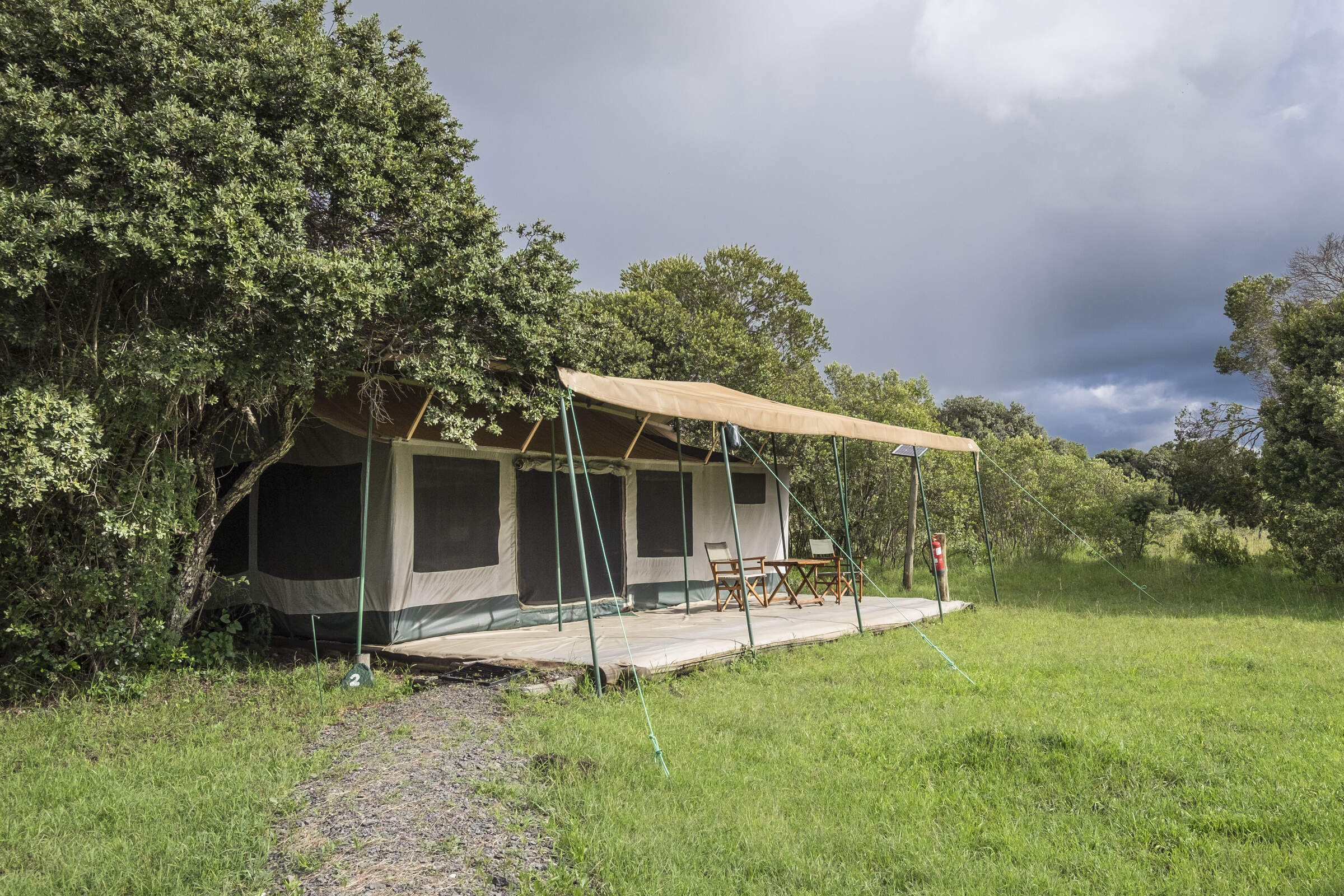
Porini Rhino Camp
Porini Rhino Camp is a small, simple, well established tented camp, with a keen focus on sustainable and low-impact tourism.
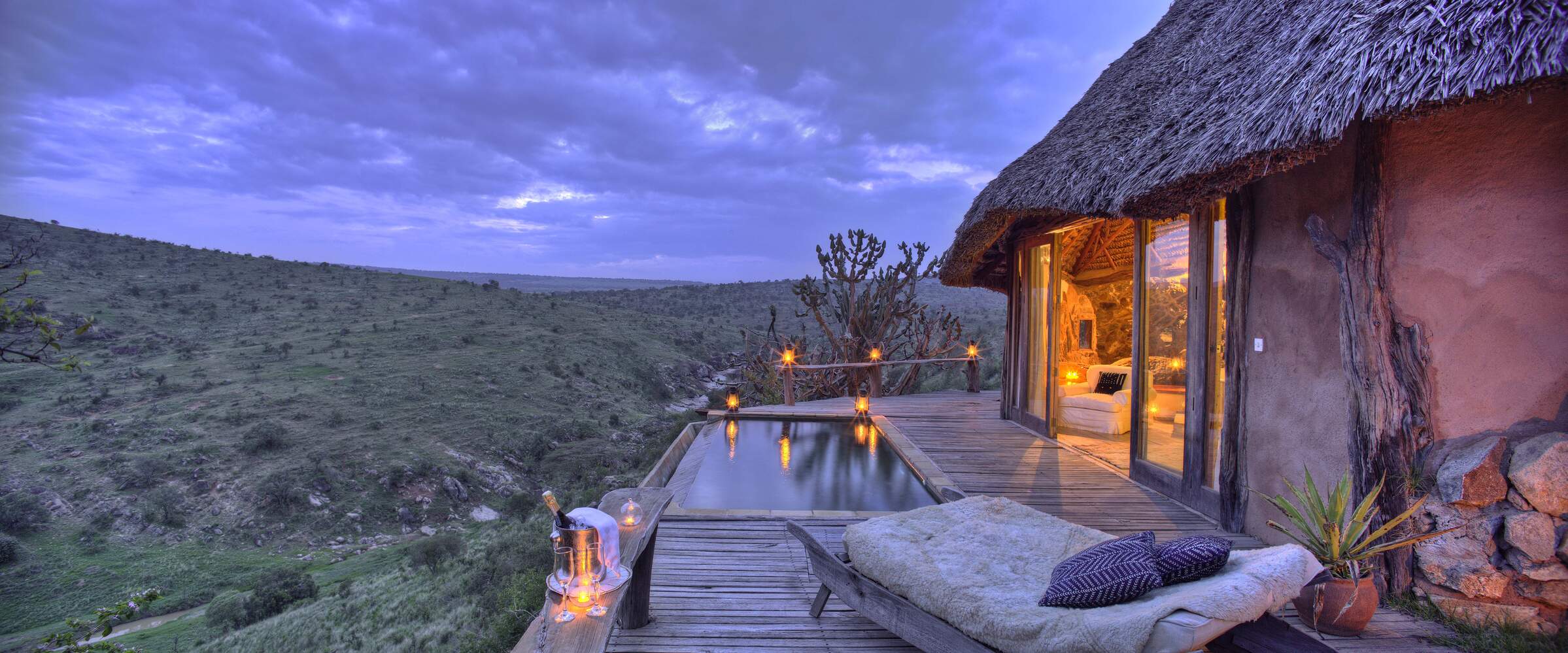
Borana
Borana is a comfortable and striking lodge on the Borana Conservancy in eastern Laikipia, offering pleasant accommodation with good food and service and a very wide range of activities.
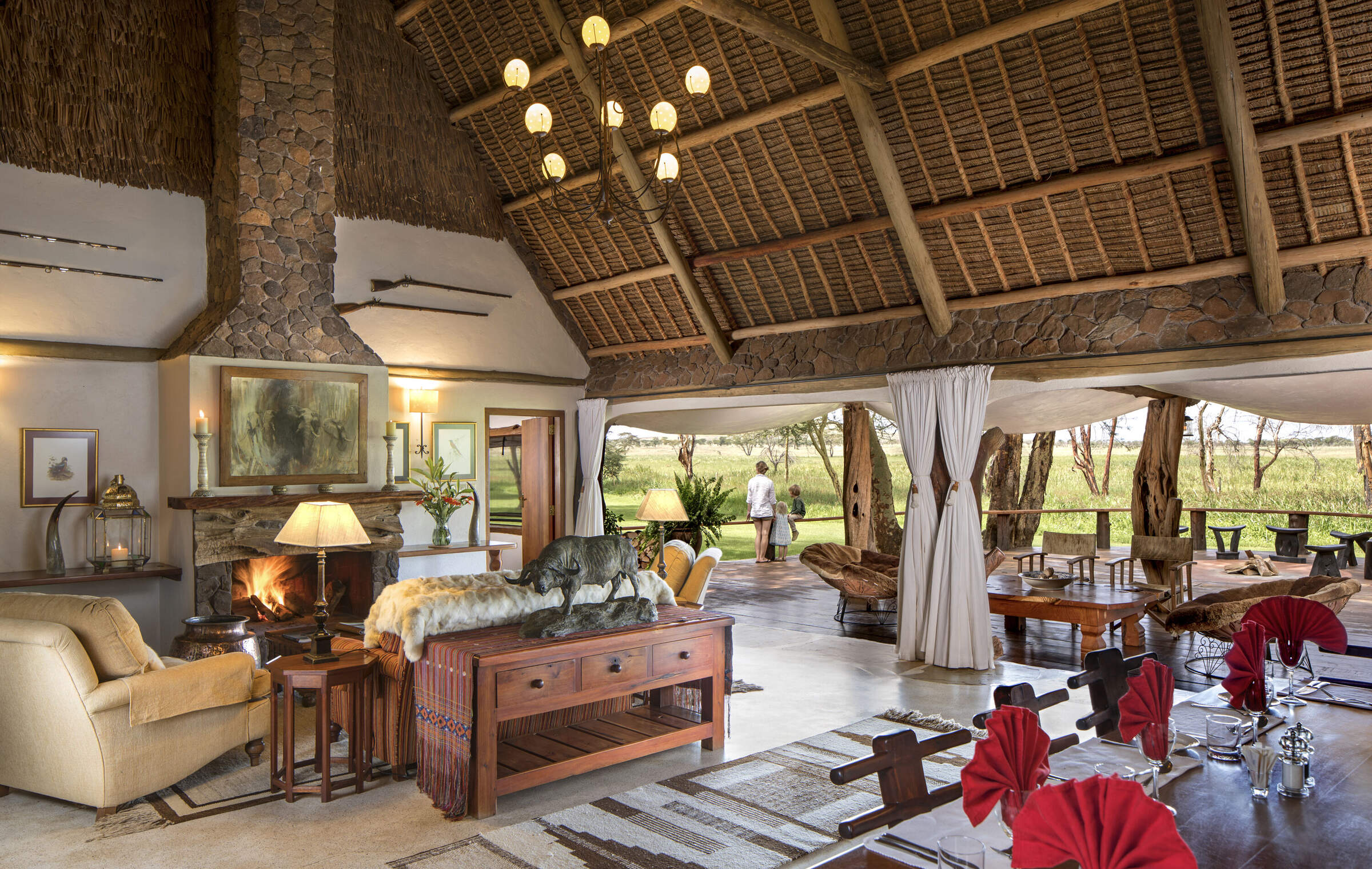
Sirikoi
Sirikoi is a small, very high-quality safari camp with excellent service and food and a wide selection of activities.
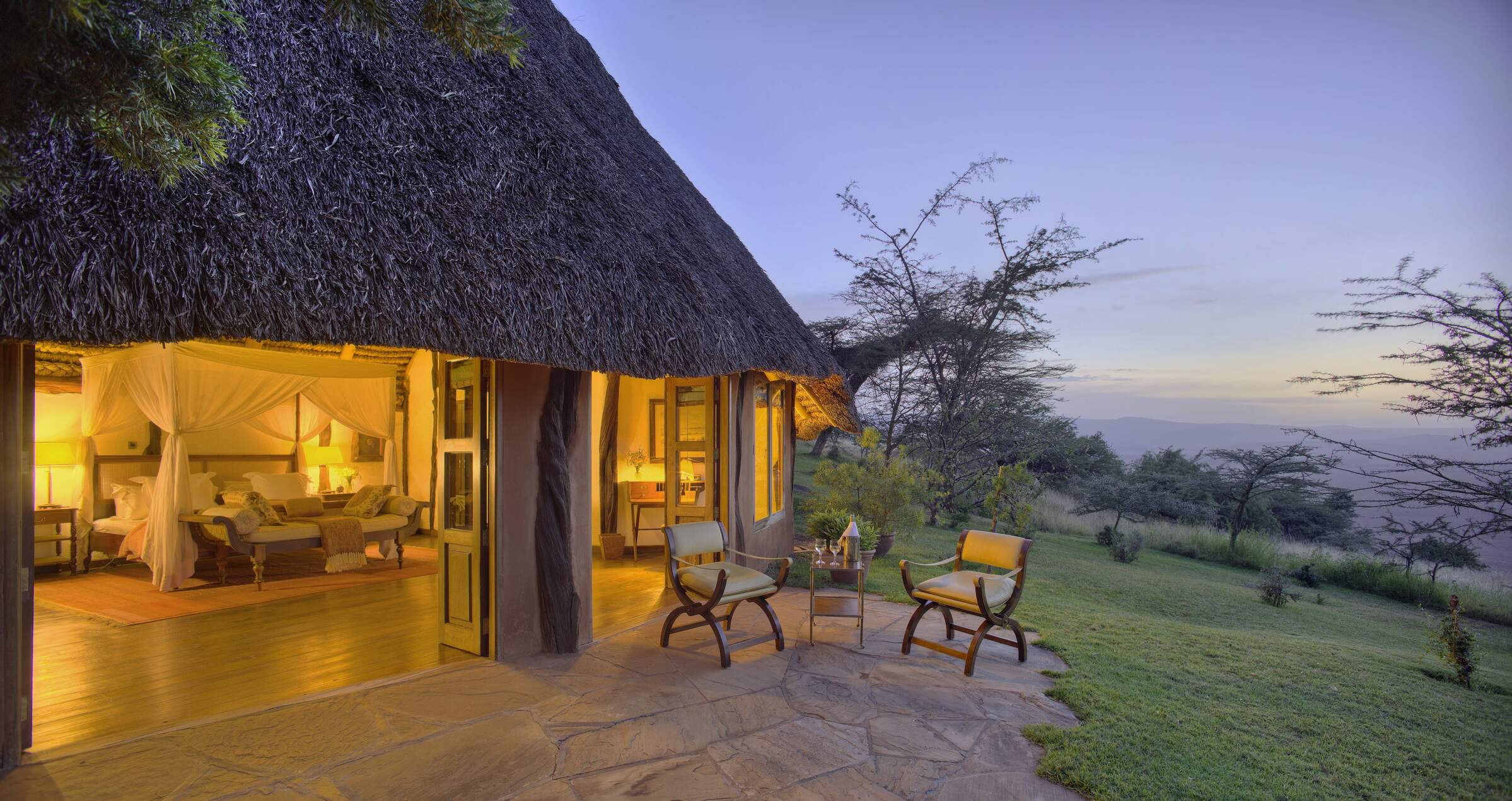
Kifaru House
Kifaru House is a small, stylish safari lodge in the Lewa Conservancy, with beautiful views across the landscape.
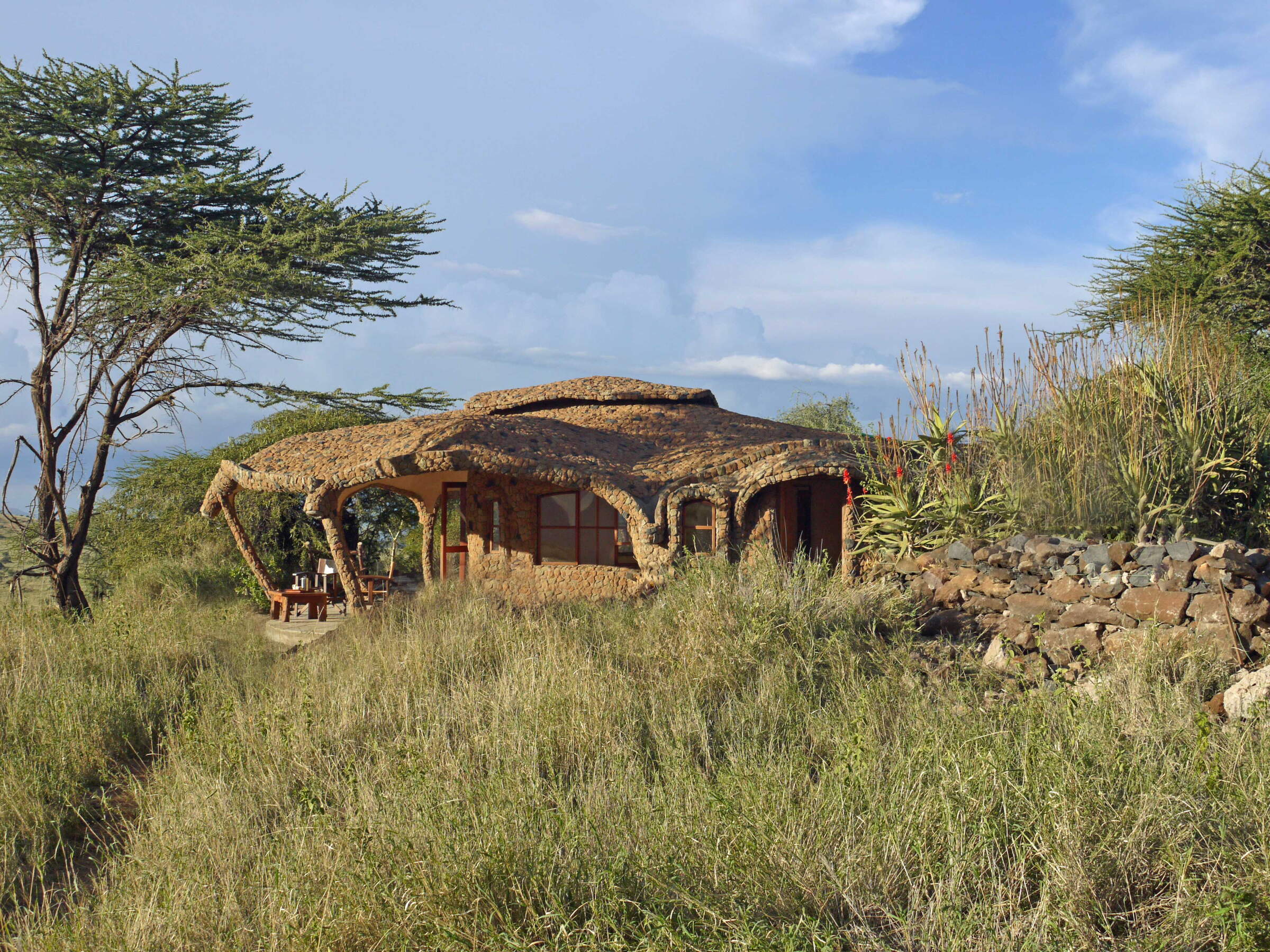
Lewa House
Lewa House is a very comfortable, boutique safari lodge located on the Lewa Conservancy, north of Mount Kenya.
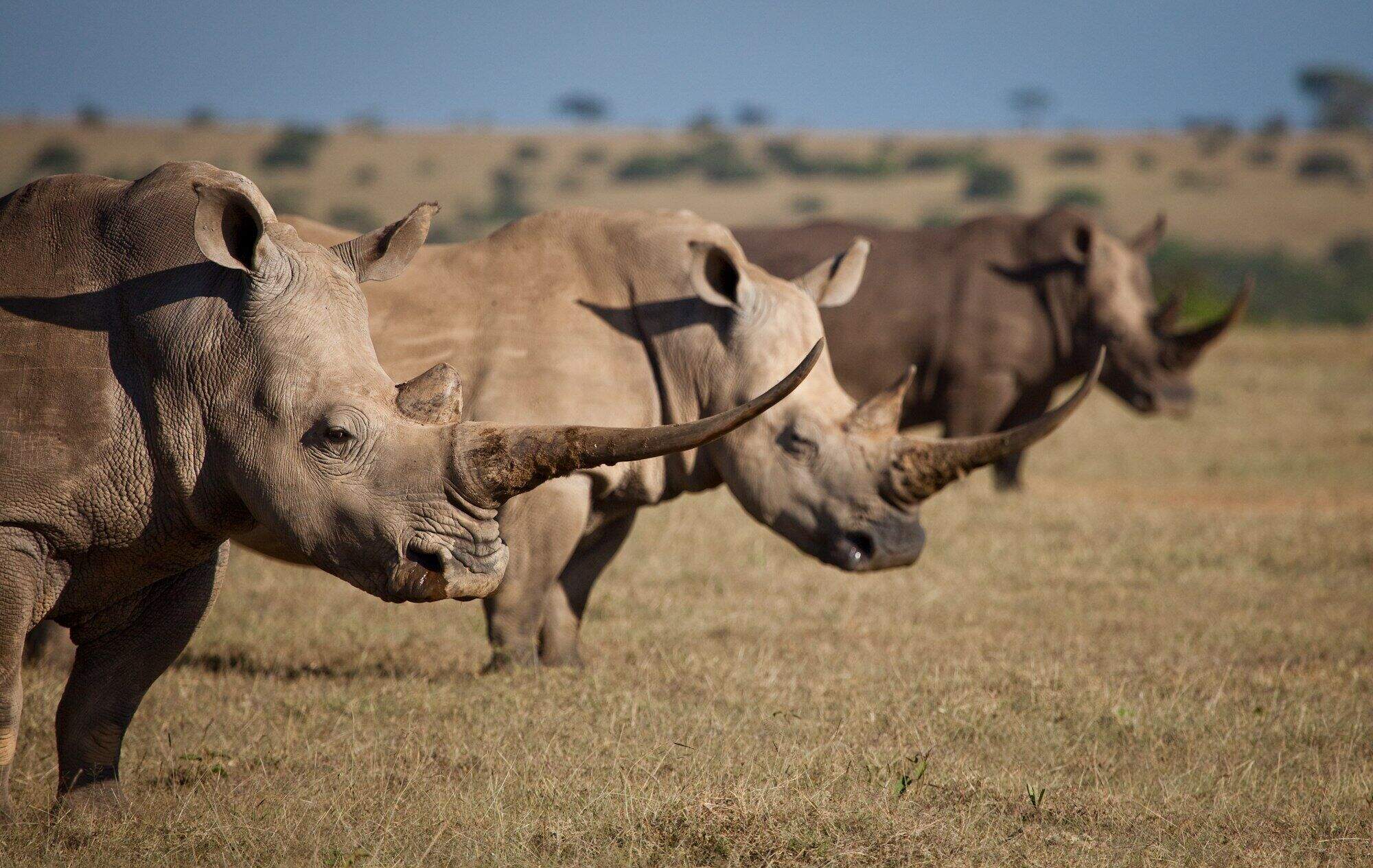
Solio Lodge
Solio Lodge is an exclusive and luxurious bush lodge set in the private Solio Game Ranch in southern Laikipia.
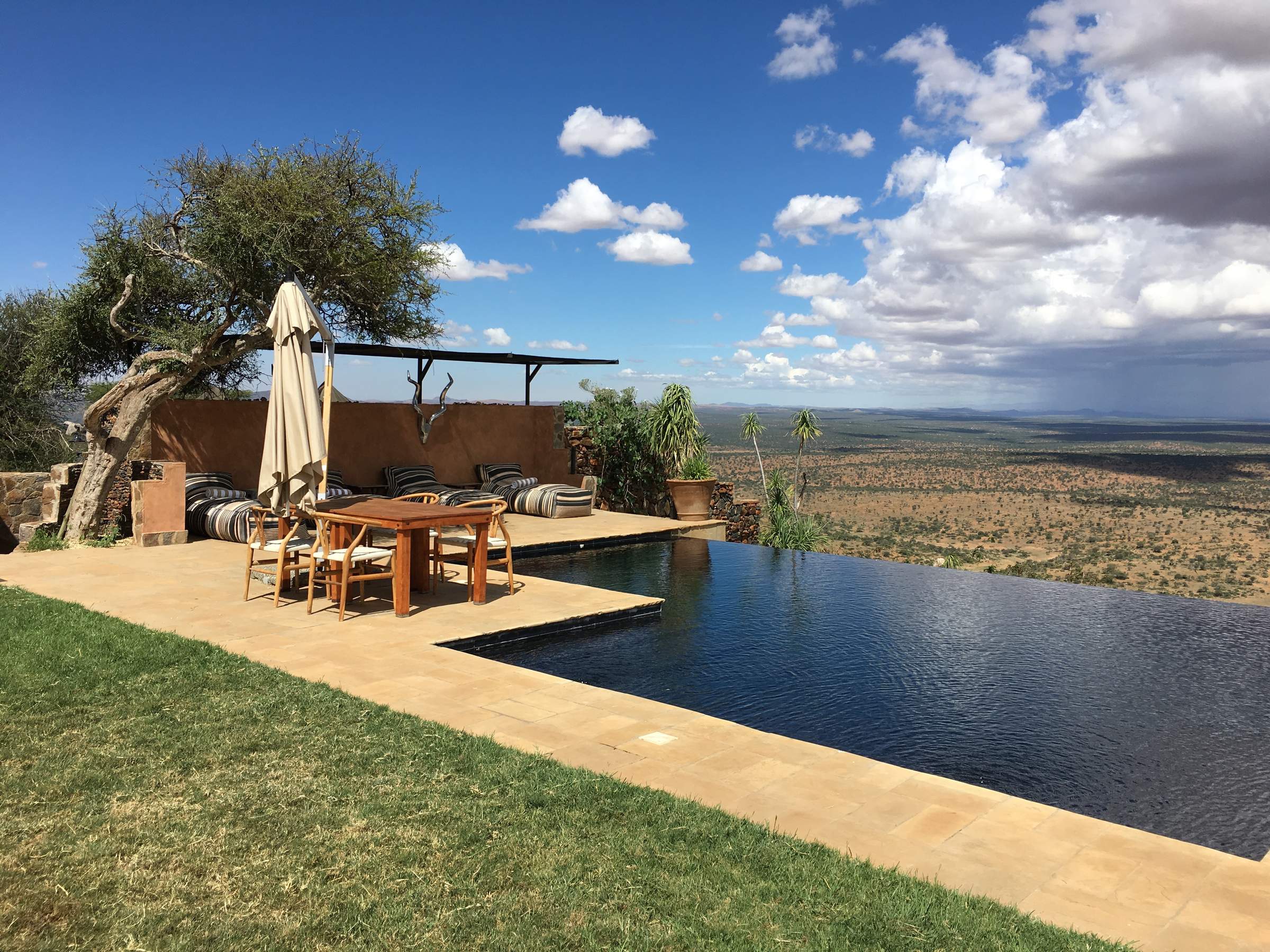
Loisaba Tented Camp
Loisaba Tented Camp is a luxury safari base of tented rooms, ranged along a ridge in the Loisaba Conservancy, facing Mount Kenya. The camp was completely rebuilt in 2016.
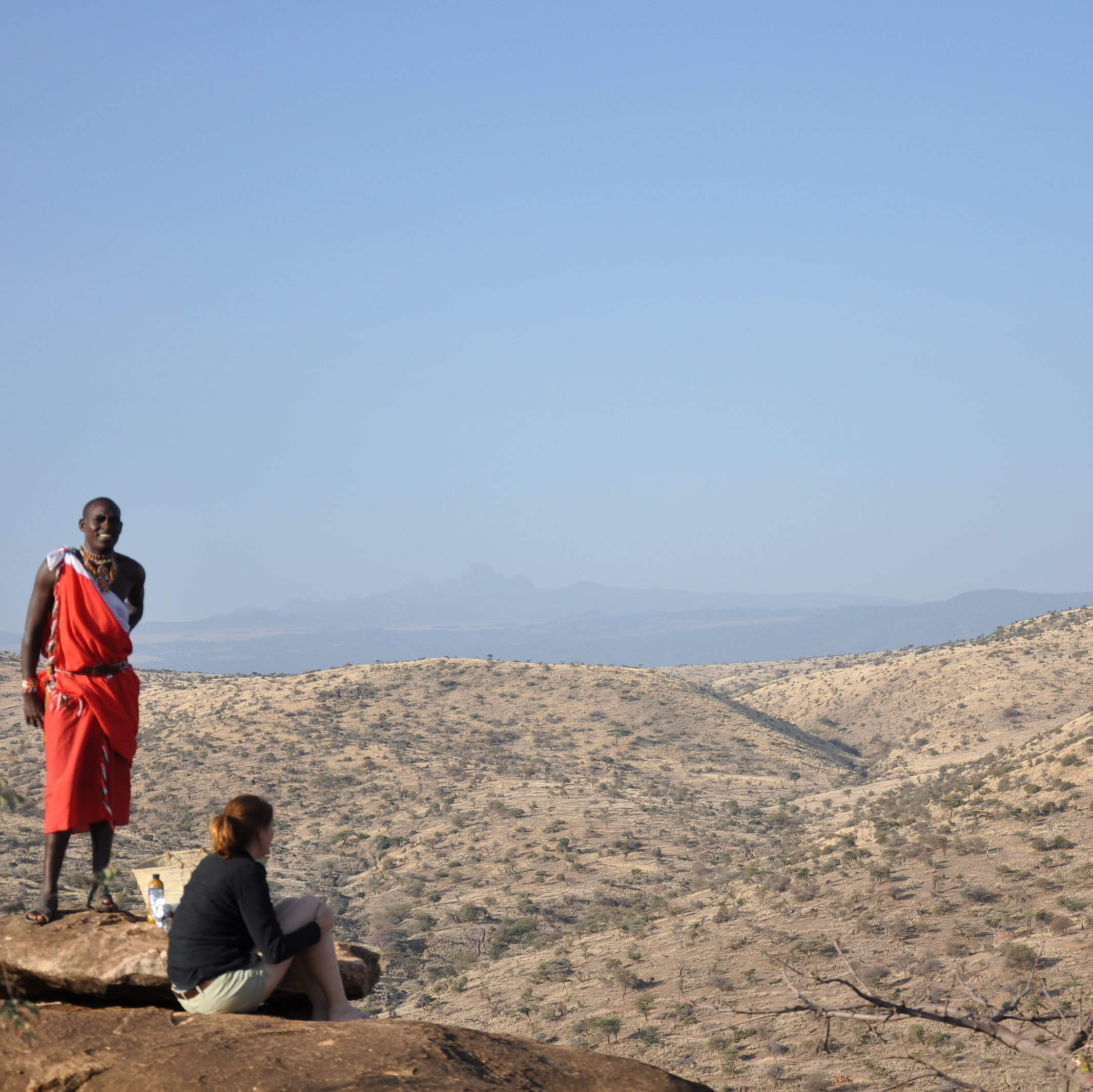
Tassia Lodge
Tassia offers a unique wilderness experience in a remote location: come here for cultural interaction, stunning views and something a bit different.
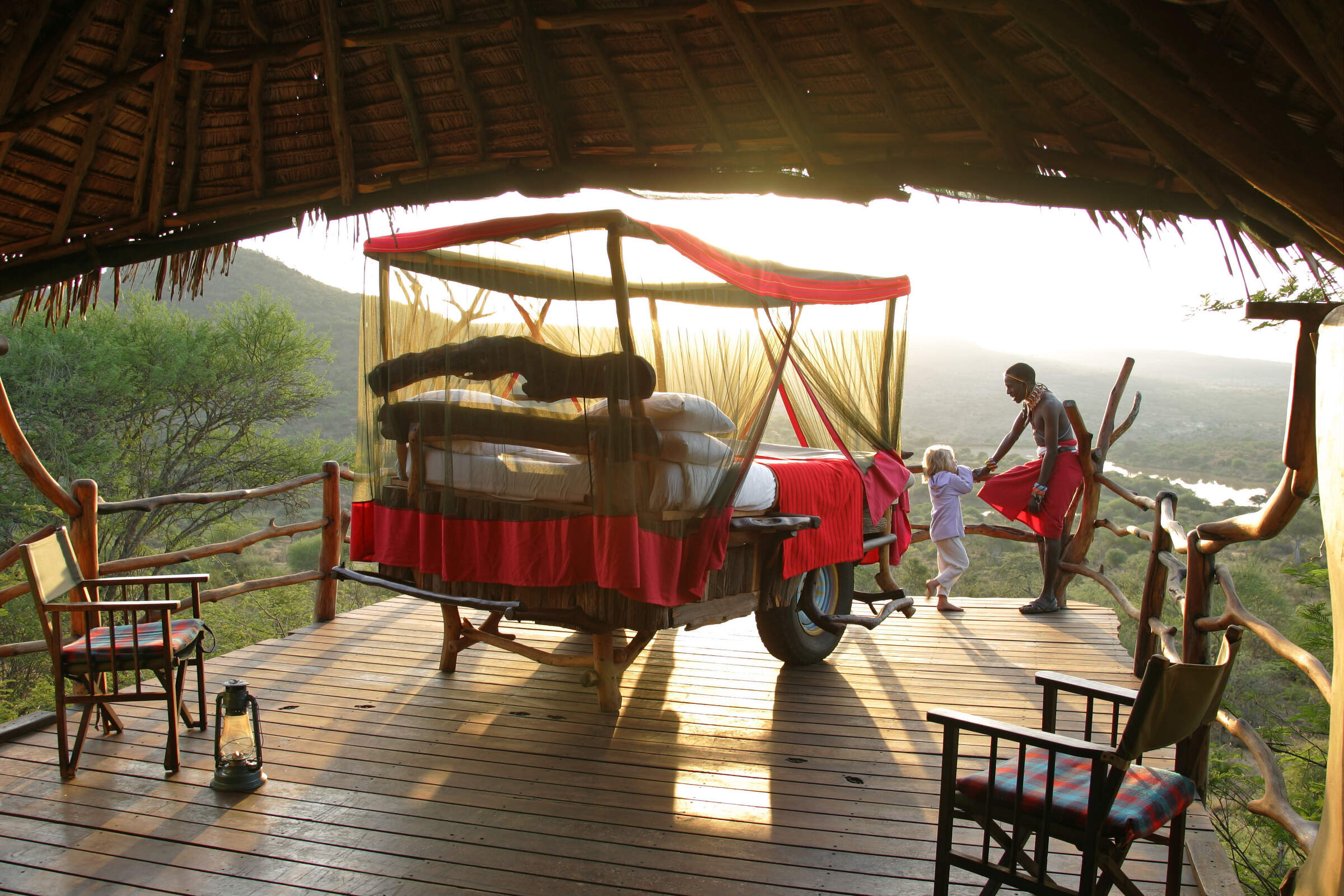
Loisaba Star Beds
Loisaba Starbeds is a simple camp of 4 rooms with pull-out, open-air 'star beds', located near a dam in the Loisaba Conservancy, in northwestern Laikipia.
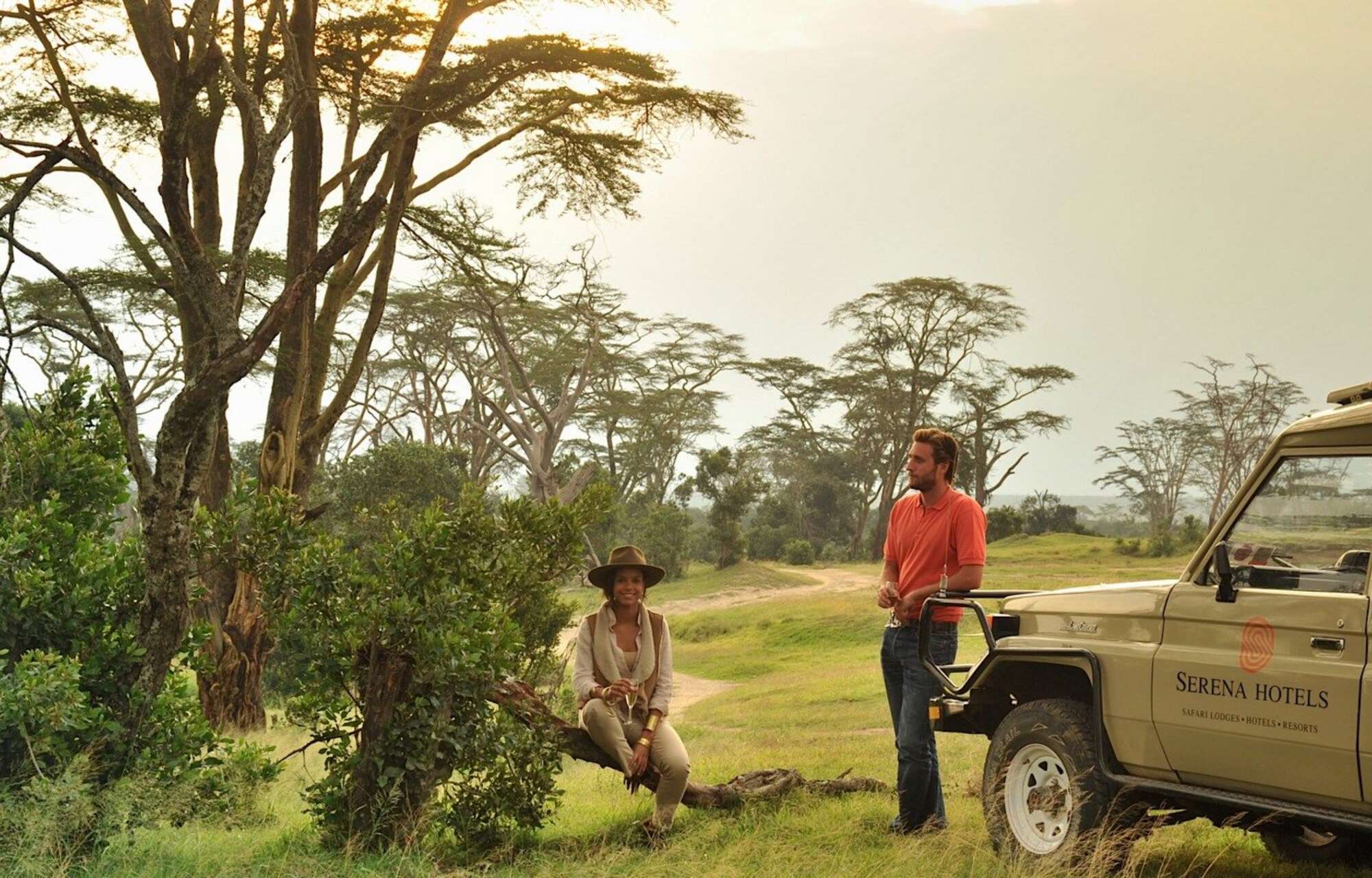
Sweetwaters Serena
Sweetwaters Serena is a large, older tented camp – the largest camp in the Laikipia region – in the eastern part of the Ol Pejeta Conservancy.
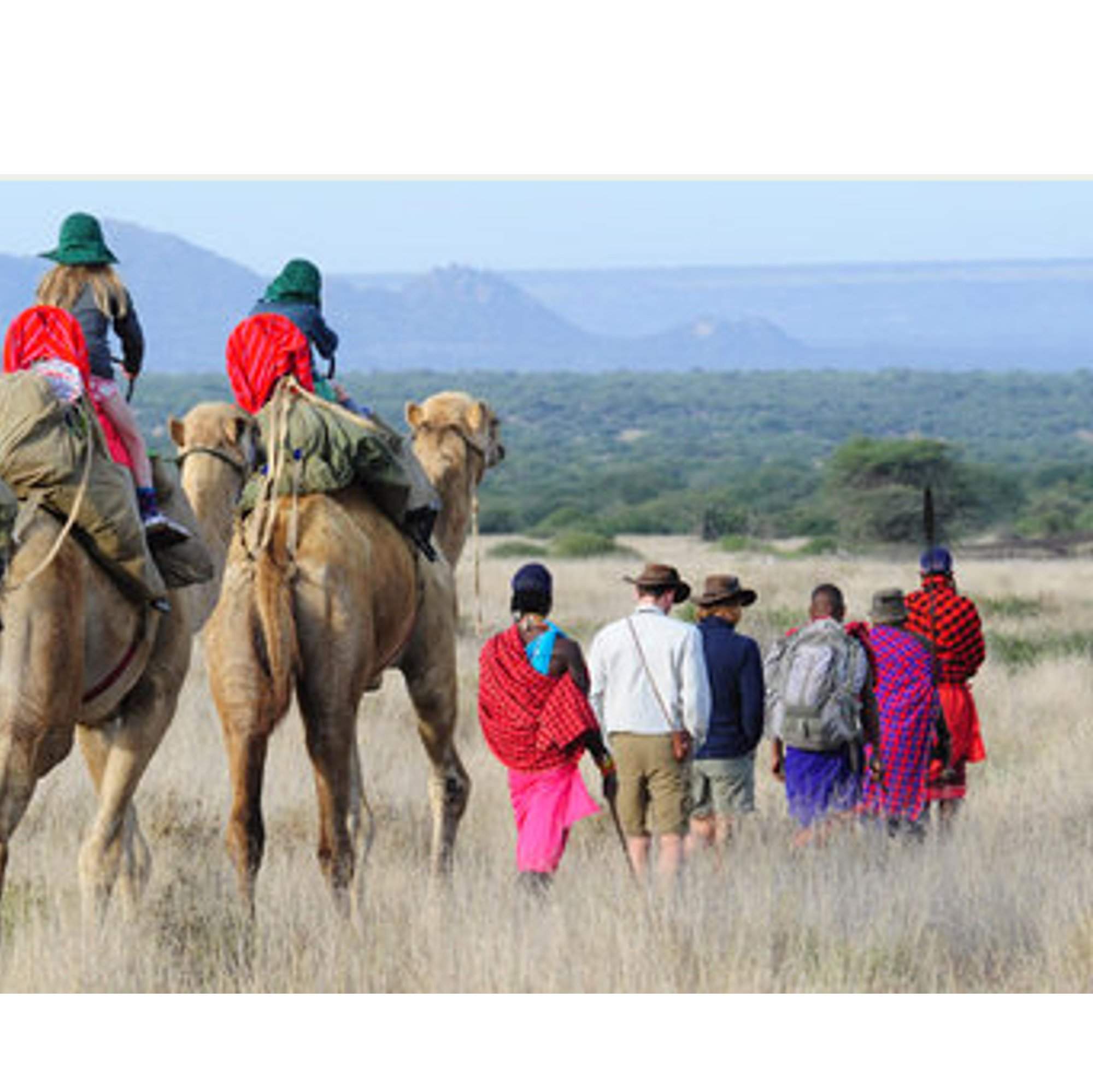
Karisia Walking Safaris
Karisia Walking Safaris operates camel assisted, multi-day walking safaris from its main camp, Tumaren, set in a remote part of Laikipia.
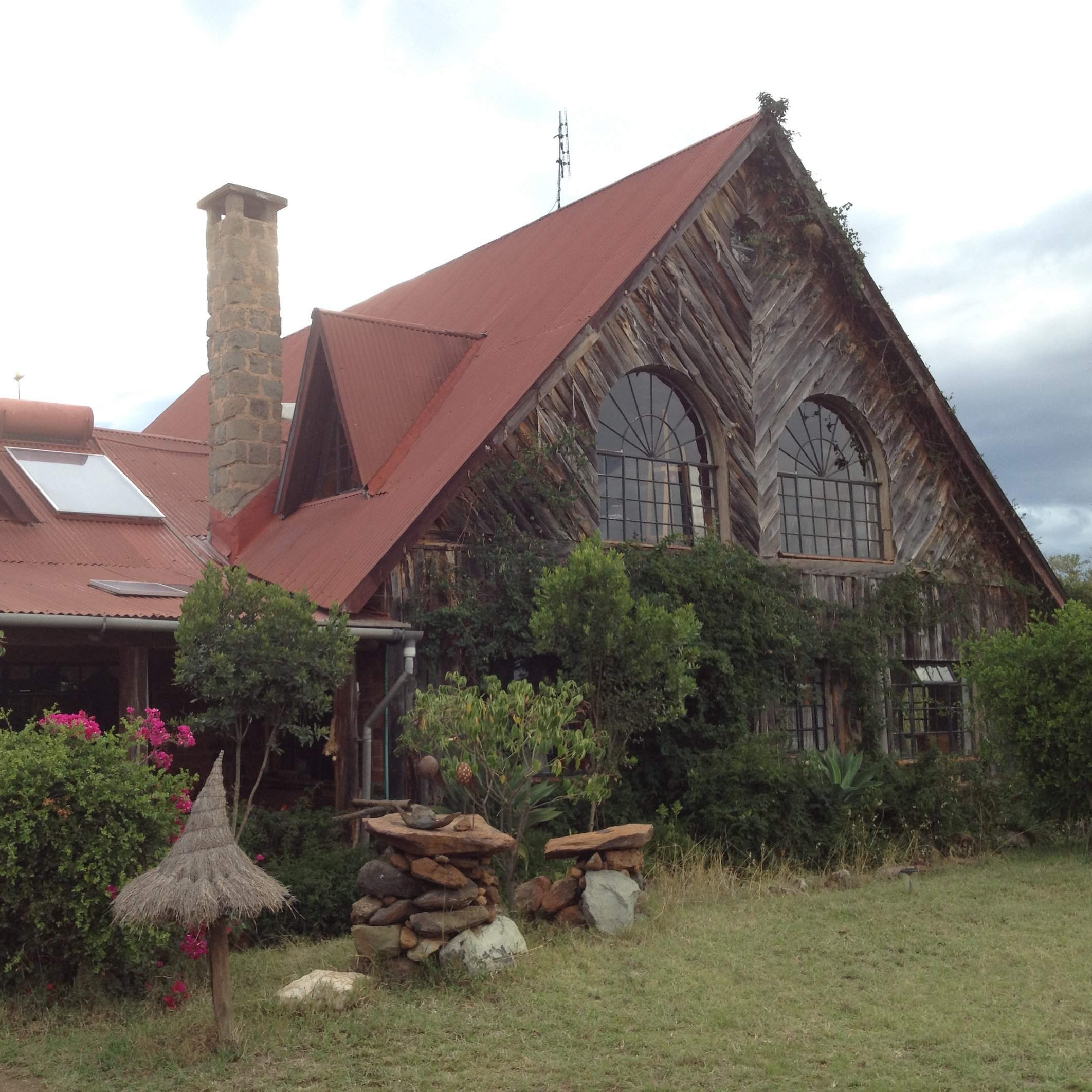
Sandai
Sandai is a pretty, owner-run homestay, set between the Aberdare Range and Mount Kenya, offering a range of activities at extra cost.
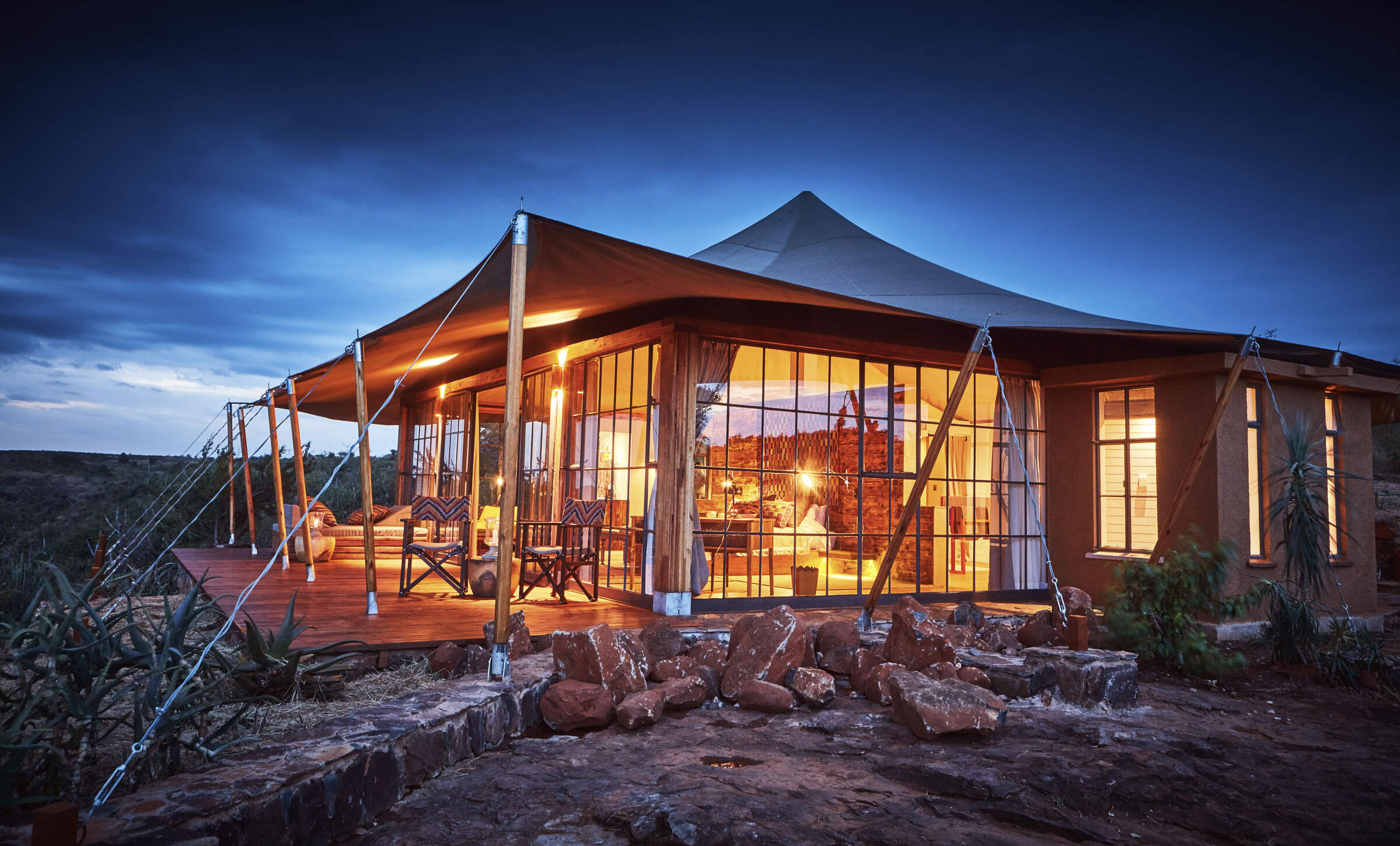
Lodo Springs
Lodo Springs is a spectacularly located luxury lodge in a remote spot in the Loisaba Conservancy, sister lodge to Loisaba Tented Camp and Loisaba Star Beds.
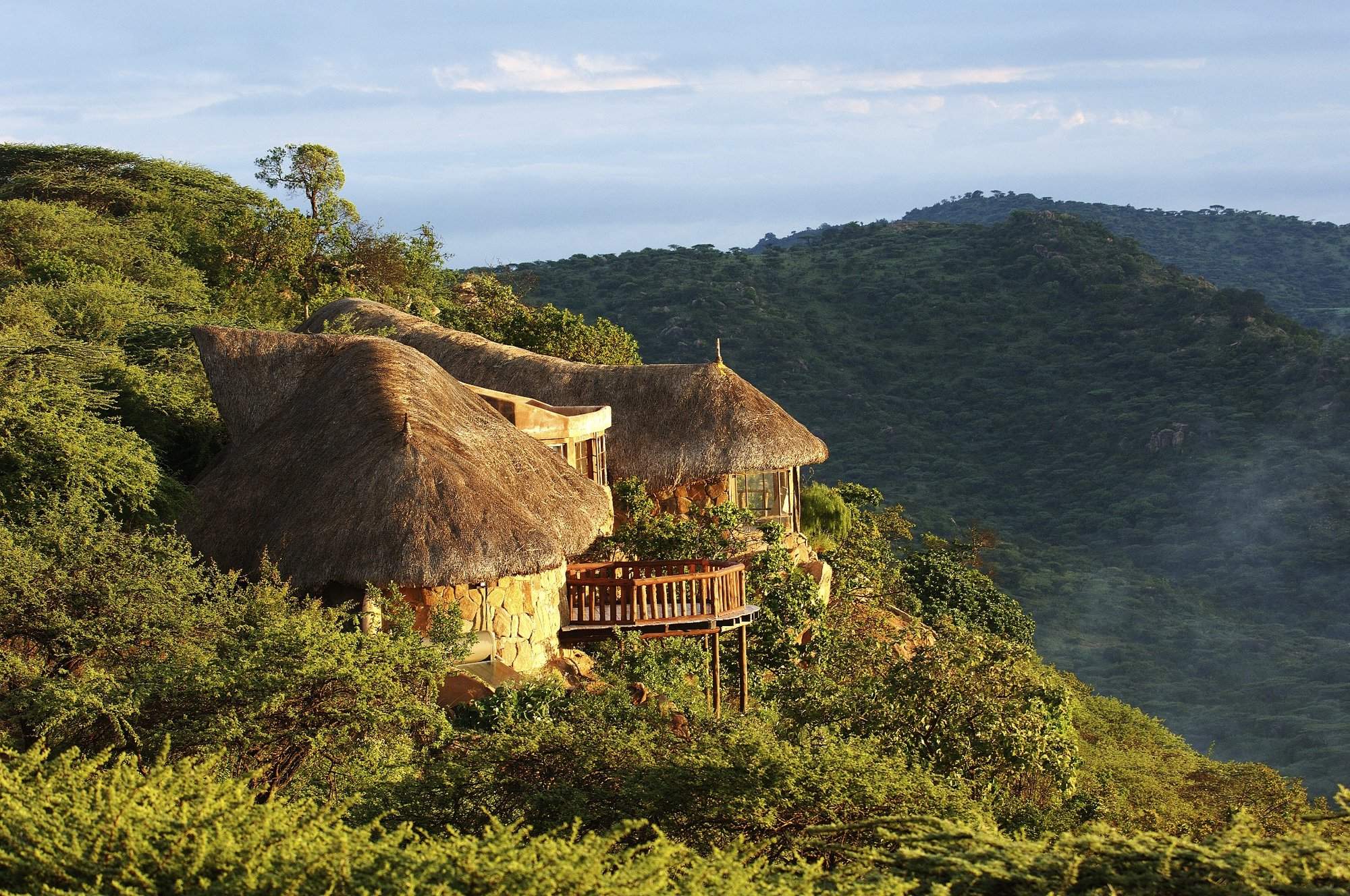
Sanctuary at Ol Lentille
The Sanctuary at Ol Lentille is an unusual safari lodge in northern Laikipia, consisting of three exclusive villas, and offering a huge range of activities.
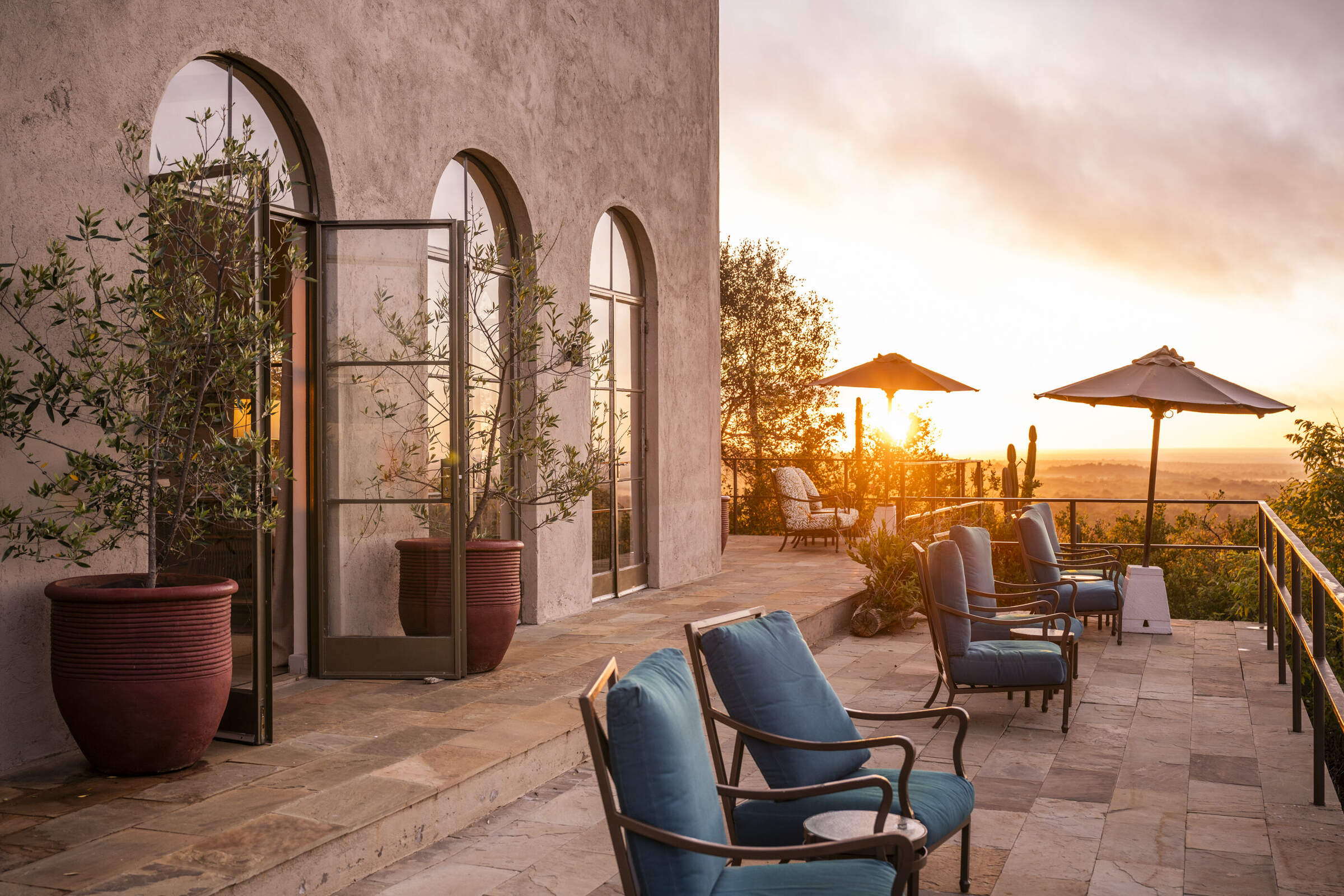
Governors' Mugie House
Governors' Mugie House – a substantial, luxury safari lodge – is one of only two properties in the Mugie Conservancy in northwestern Laikipia.
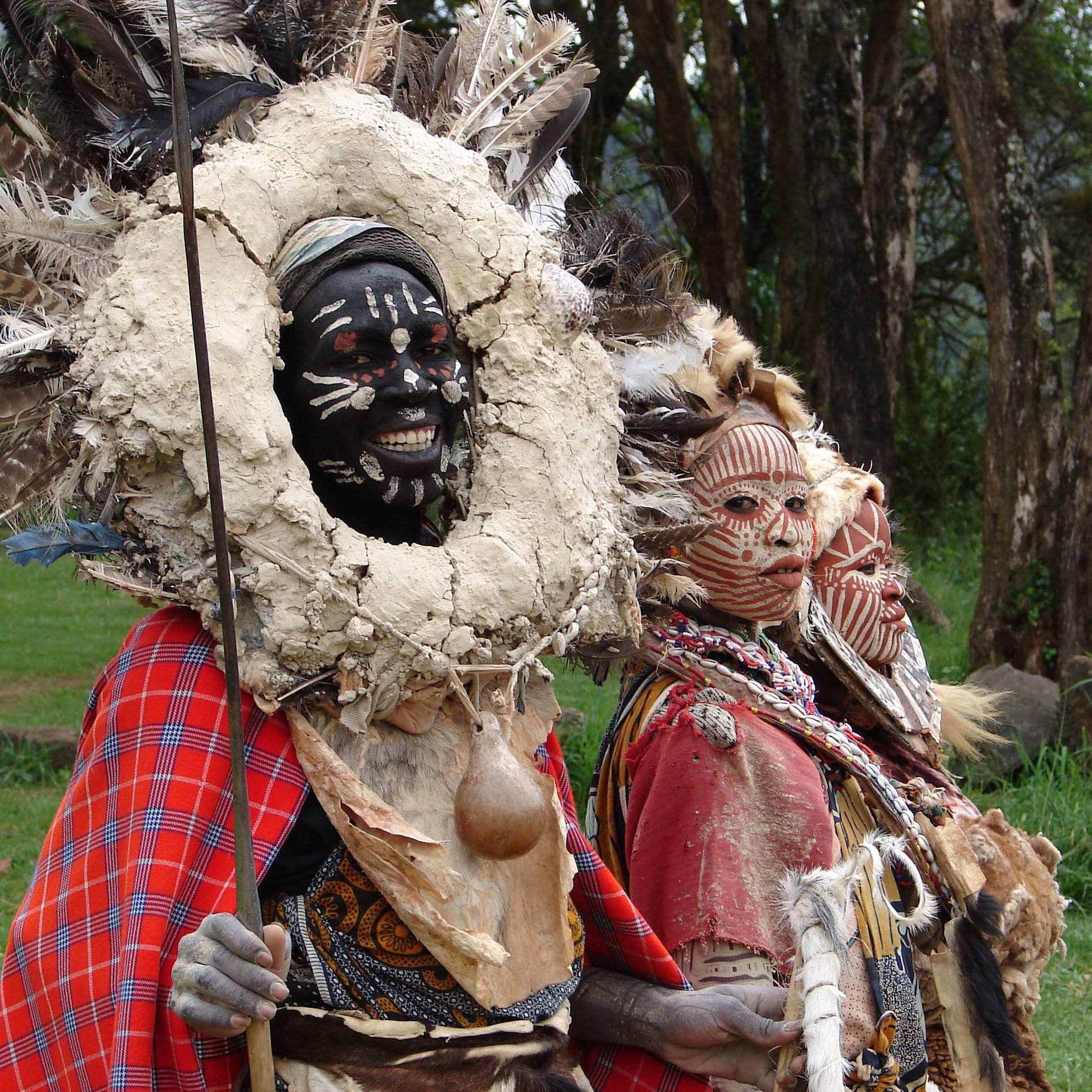
Thomsons Falls Lodge
Thomsons Falls Lodge is a simple hotel dating back to the colonial era, located above the falls of the same name, near the western Laikipia town of Nyahururu.
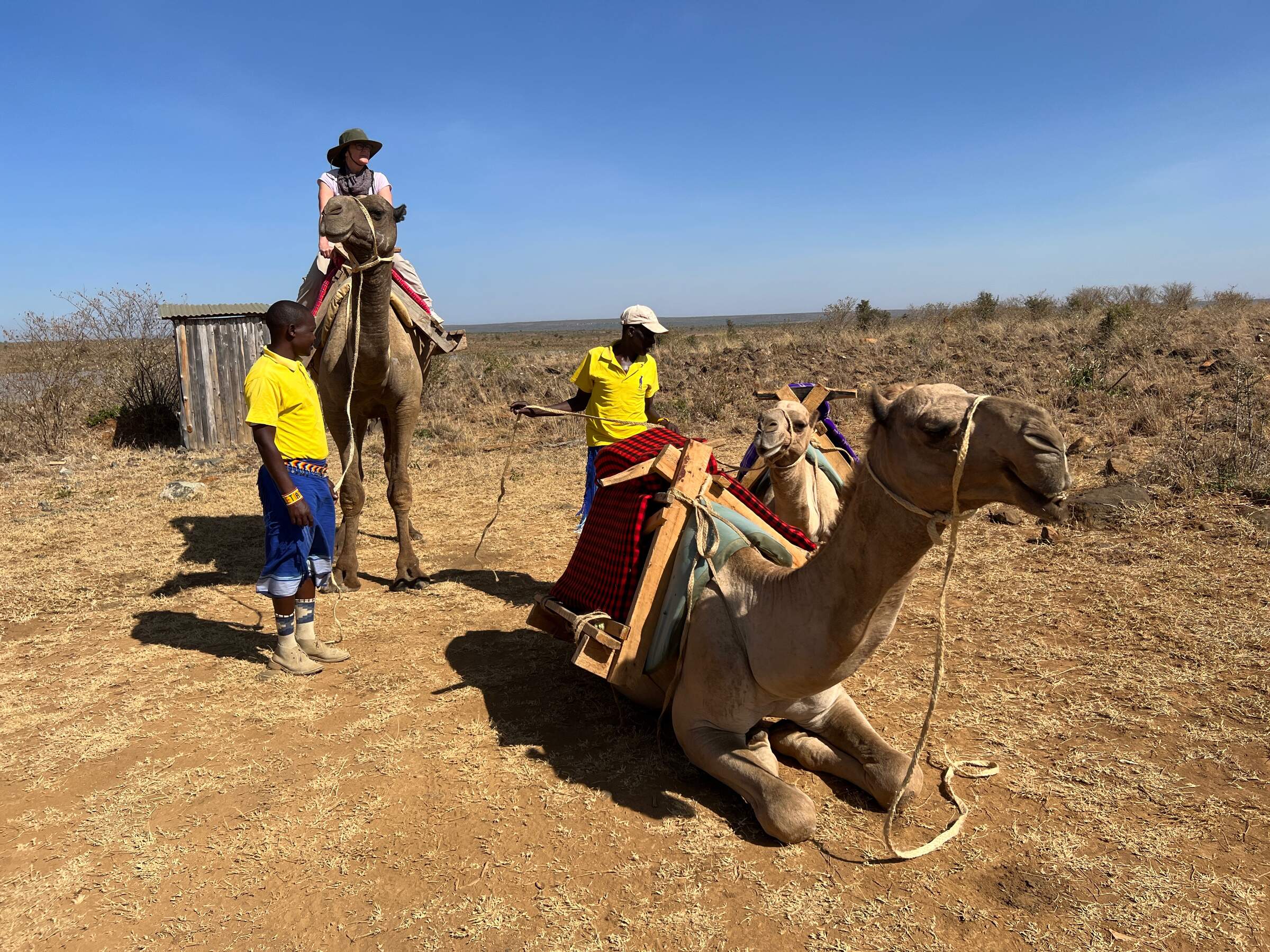
Ekorian's Mugie Camp
Ekorian's Mugie Camp is a pleasant, family-friendly safari camp in a remote location in northwestern Laikipia.
When to go to Laikipia
Our month by month guide: What it's like to visit Laikipia Wilderness in Laikipia
Jan
Feb
Mar
Apr
May
Jun
Jul
Aug
Sep
Oct
Nov
Dec
Laikipia in January
Clear, warm days and mild nights make this a popular time for safaris in Laikipia. It's excellent for game viewing in all the conservancies, where water sources attract diverse wildlife. The dry conditions make it easier to spot black rhinos, lions and leopards. Star bed sleep-out options at a number of lodges are particularly magical under the clear night skies.
After the New Year period, many camps and lodges treat January as mid-season, offering good value. The landscape retains some greenery, enhancing photography.
- Clear days ideal for safaris
- Excellent visibility for wildlife viewing
- Dry riverbeds attract wildlife to water sources
- Calving season for wildebeest and antelopes
- Palearctic migrant birds abundant
Our view
Fantastic: the very best time to visit
Weather in January
Laikipia in February
With the short dry season well established in Laikipia, wildlife gathers close to water points, making it an excellent time for safaris. Ol Pejeta and Lewa Wildlife Conservancies offer prime viewing opportunities for endangered species like black rhinos and Grevy's zebras. Solio Rhino Conservancy provides exceptional black rhino sightings during this period. The grass is grazed down, improving visibility across the region.
February is ideal for walking safaris, where you can appreciate the smaller details of the ecosystem. The clear skies make stargazing from star beds an unforgettable experience. Cultural visits to local communities are particularly rewarding, as the pleasant weather encourages outdoor activities and interactions.
- Prime time for wildlife gathering near water
- Ideal conditions for walking safaris
- Palearctic migrant birds still present
- Low rainfall makes game drives rewarding
Our view
A very good time to visit
Weather in February
Laikipia in March
As March progresses in Laikipia, the weather becomes increasingly hot and humid with more rain likely later in the month. Through most of the month, conditions are still good for game drives in most districts. As the month advances, the buildup to the rainy season becomes apparent.
This period can offer unique photographic opportunities as animals congregate around diminishing water sources. Accommodation costs decrease as the low season approaches.
- Early month offers great wildlife viewing
- Hot weather transitions to occasional rains
- Lower visitor numbers
- Lush vegetation begins to appear
Our view
A good time to visit, with pros & cons
Weather in March
Laikipia in April
April usually sees established, serious rainfall in much of Laikipia, transforming the landscape. The southeast monsoon wind brings cooler temperatures and frequent downpours. While game viewing can be challenging due to lush vegetation, the green season offers unique experiences, with new-born animals visible among the verdant scenery.
The landscape bursts into life with vibrant colours, ideal for photography. Birdwatching is excellent with many species breeding. This is a quieter time for tourism, with lower accommodation rates at many places allowing for a more exclusive safari experience for great levels of service.
- Long rains begin, transforming landscapes
- Green season offers unique photo opportunities
- Lower rates at Laikipia's luxury lodges
- Buffalo and zebra calving season commences
- Birdwatching excellent
Our view
A good time to visit, with pros & cons
Weather in April
Laikipia in May
May in Laikipia is characterised by ongoing rains and lush vegetation. While game viewing can be trickier, the vibrant landscapes offer spectacular photographic opportunities with very little dust. The landscapes are a sea of green, with diverse and thriving flora.
This is an excellent time for birdwatching across the region as breeding season continues. The Ewaso Nyiro river swells impressively. Despite potential challenges, patient visitors may witness dramatic scenes of predators hunting in the thick vegetation.
- Lush vegetation makes wildlife spotting trickier
- Great for landscape and nature photography
- Rutting season for wildebeest and impalas
- Frog breeding season in Laikipia's wetlands
- Mount Kenya views improve with clearer air
Our view
A good time to visit, with pros & cons
Weather in May
Laikipia in June
As June progresses in Laikipia, the rains give way to slightly cooler, cloudy weather. This transition marks the beginning of a long, generally dry, high season for visitors. Game viewing improves as vegetation starts to thin, and conditions are comfortable.
The Ewaso Nyiro river, still full from the rains, attracts diverse wildlife. Accommodation rates begin to rise, reflecting the start of peak season.
- Rains subside, ushering in cooler weather
- High season begins with increased visitors
- Comfortable conditions game viewing
Our view
A good time to visit, with pros & cons
Weather in June
Laikipia in July
July in Laikipia brings cooler temperatures and ideal conditions for safaris. Animals concentrate around water sources on the conservancies, providing excellent game viewing opportunities.
July marks the peak of the high season, with higher accommodation rates and visitor numbers. The dry conditions make it easier to spot elusive species like leopards and black rhinos.
- Cool weather perfect for walking and riding
- Wildlife concentrates around water sources
- Excellent conditions for photography tours
Our view
A good time to visit, with pros & cons
Weather in July
Laikipia in August
August in Laikipia offers mild, dry weather, perfect for safaris. The conservancies teem with wildlife, including endangered species like black rhinos and Grevy's zebras. The landscapes offer stunning vistas and excellent conditions for game drives and walking safaris. The dry conditions make it easier to spot big cats across the region. This is peak season, so expect higher visitor numbers and accommodation rates.
You might consider combining your Laikipia safari with a stay at the nearby Samburu National Reserve, known for its “northern five” species – Grevy’s zebra, reticulated giraffe, beisa oryx, gerenuk and Somali ostrich.
- Peak season for wildlife viewing in Laikipia
- Mild weather ideal for outdoor activities
- Busy period requires advance bookings
Our view
A good time to visit, with pros & cons
Weather in August
Laikipia in September
As September progresses in Laikipia, the weather typically remains dry with clearing skies, signalling excellent safari conditions. Early September can be busy, but visitor numbers decrease later in the month. In the conservancies, game viewing is exceptional as animals congregate around limited water sources.
September generally offers excellent conditions for photography.
- Hot, dry weather with good visibility
- Quieter period for more exclusive safaris
- Natural bush fires flush out insects and small animals for predators
Our view
Fantastic: the very best time to visit
Weather in September
Laikipia in October
October in Laikipia brings generally hot and mostly dry conditions, ideal for safaris. It's a favourite month for many visitors due to the good weather and fewer visitors. The conservancies offer excellent game viewing, with animals concentrated around water sources. The Solio Rhino Conservancy provides exceptional rhino sightings in the dry conditions.
Birdwatching is rewarding as Palearctic migrants begin to arrive. Cultural visits to Maasai communities remain a highlight. Consider combining your Laikipia safari with a trip to the nearby Samburu National Reserve for a diverse wildlife experience.
- Warm or hot and mostly dry conditions for safaris
- Migratory birds start arriving
- Perfect for photography
Our view
A very good time to visit
Weather in October
Laikipia in November
November in Laikipia marks the beginning of the short rains, usually in the latter half of the month. This transition brings about dramatic changes in the landscape. Early November can still offer good game viewing before the rains intensify. Then the bush begins to green, creating beautiful scenery.
As the low season begins, accommodation rates decrease, and visitor numbers drop too, allowing for a more exclusive safari experience. Birdwatching becomes excellent with the arrival of many migratory species. November is ideal for photographers capturing the changing landscapes and dramatic skies, with low dust and clear air. Cultural visits to Maasai communities offer insights into how local life adapts to the changing seasons.
- Short rains begin, transforming landscapes
- Low season offers better rates and privacy
- Excellent time for birdwatching in Laikipia
- Lush scenery provides stunning backdrops
Our view
A good time to visit, with pros & cons
Weather in November
Laikipia in December
In a typical December, Laikipia sees the short rains finish by mid-month, leaving the landscape at its most beautiful. Clear blue skies return, heralding the start of the second peak visitor season from around 20 December onwards. The conservancies offer excellent game viewing with lush backdrops.
Christmas can occasionally be wet, but most years see perfect safari conditions by the festive season. This is an ideal time to combine wildlife viewing with cultural experiences, such as visiting Maasai communities.
- Rains typically end, leaving landscapes lush
- Peak tourist season begins mid-month
- Christmas safaris popular in conservancies
- Night sky clarity ideal for stargazing
Our view
A good time to visit, with pros & cons
Weather in December

Looking for inspiration on where to travel next?
Visit our trip chooser to explore your options and find inspiration for your perfect African adventure
Inspire me